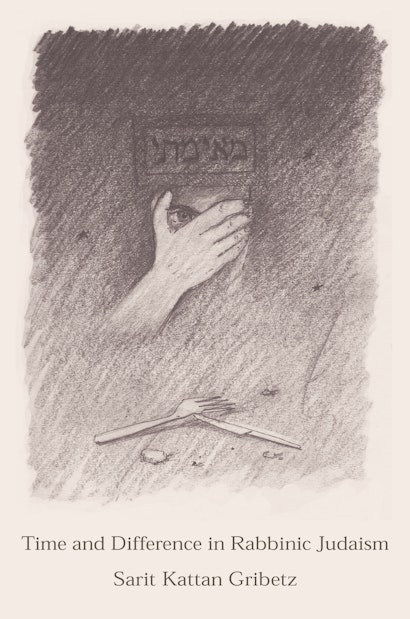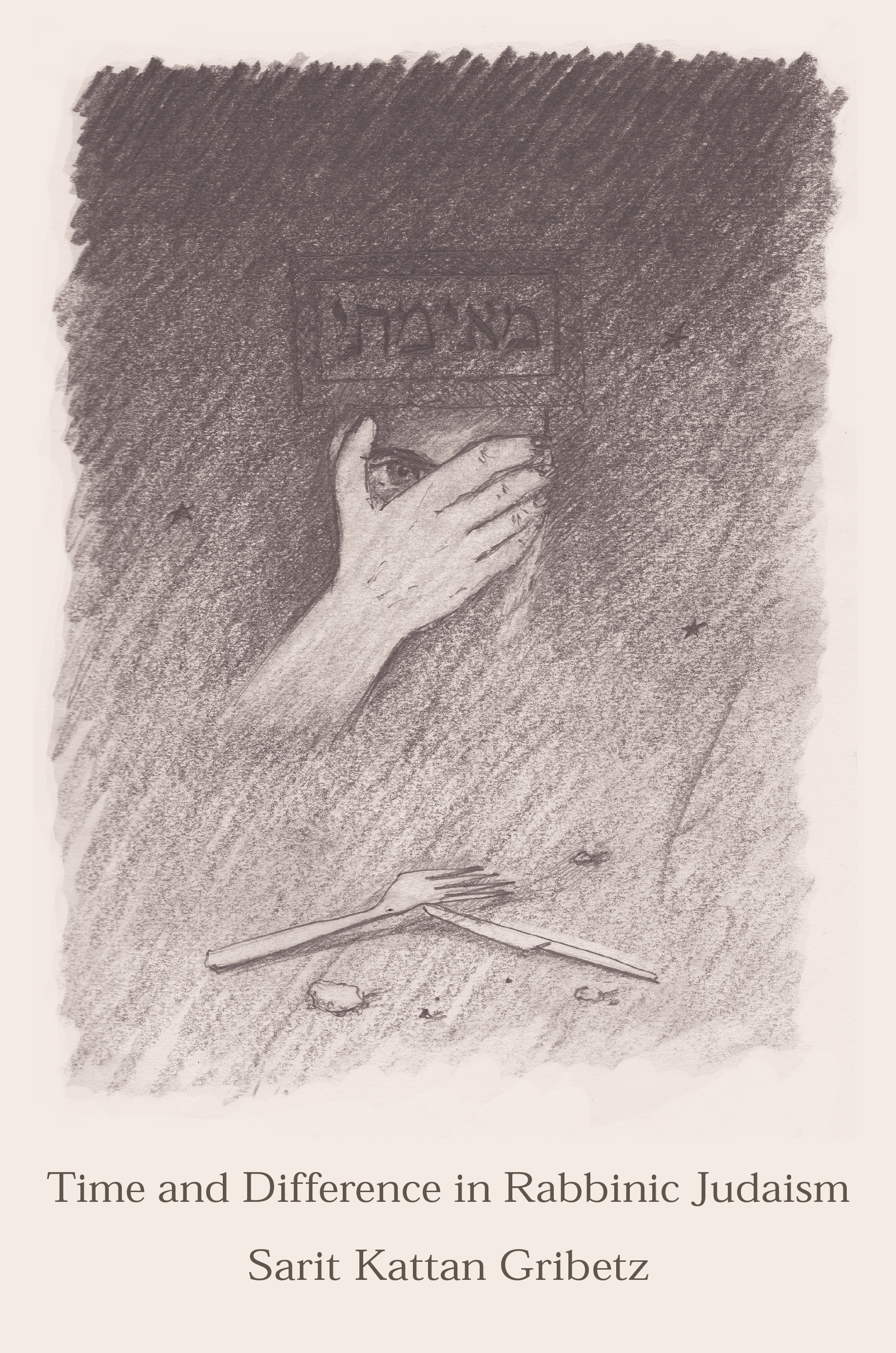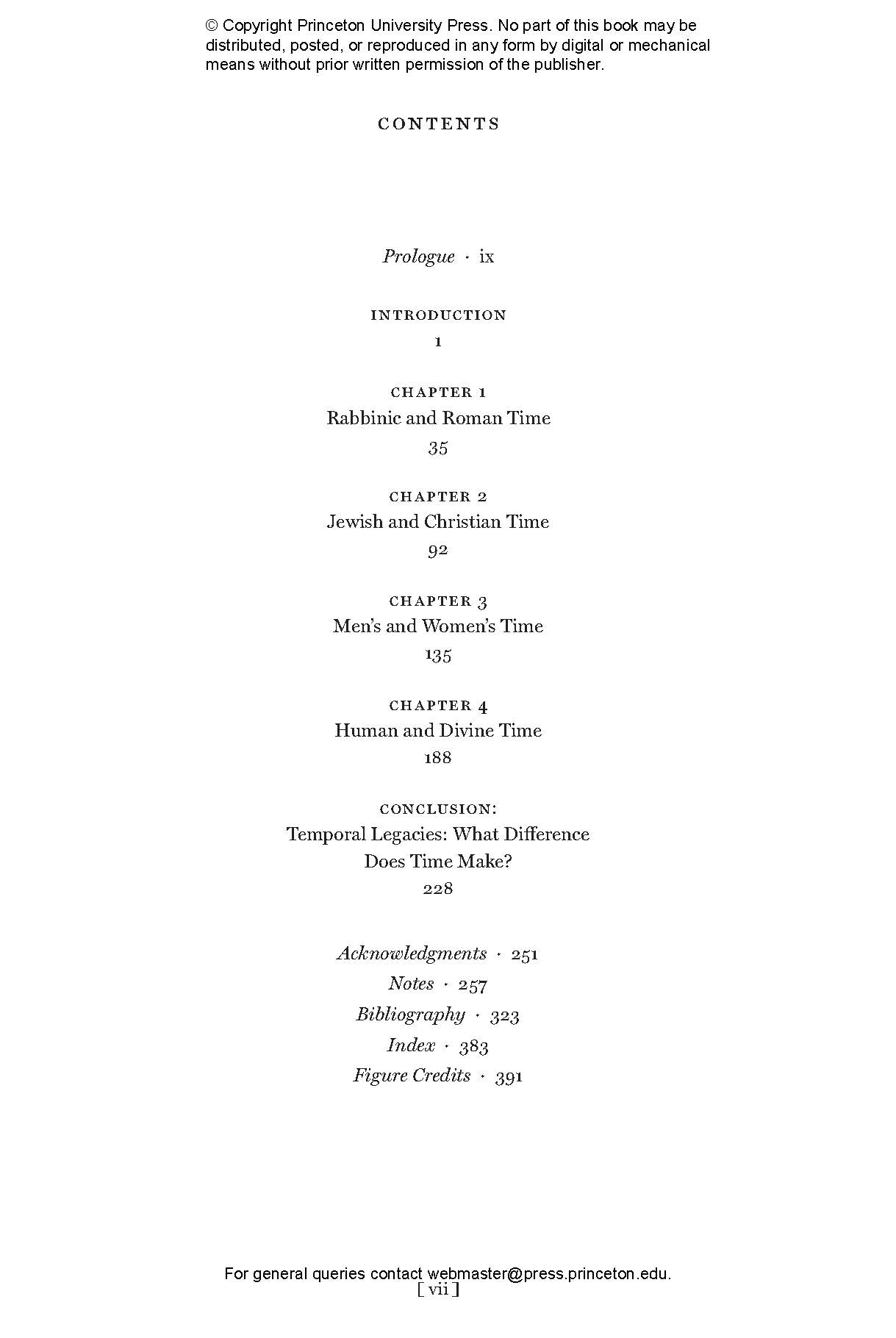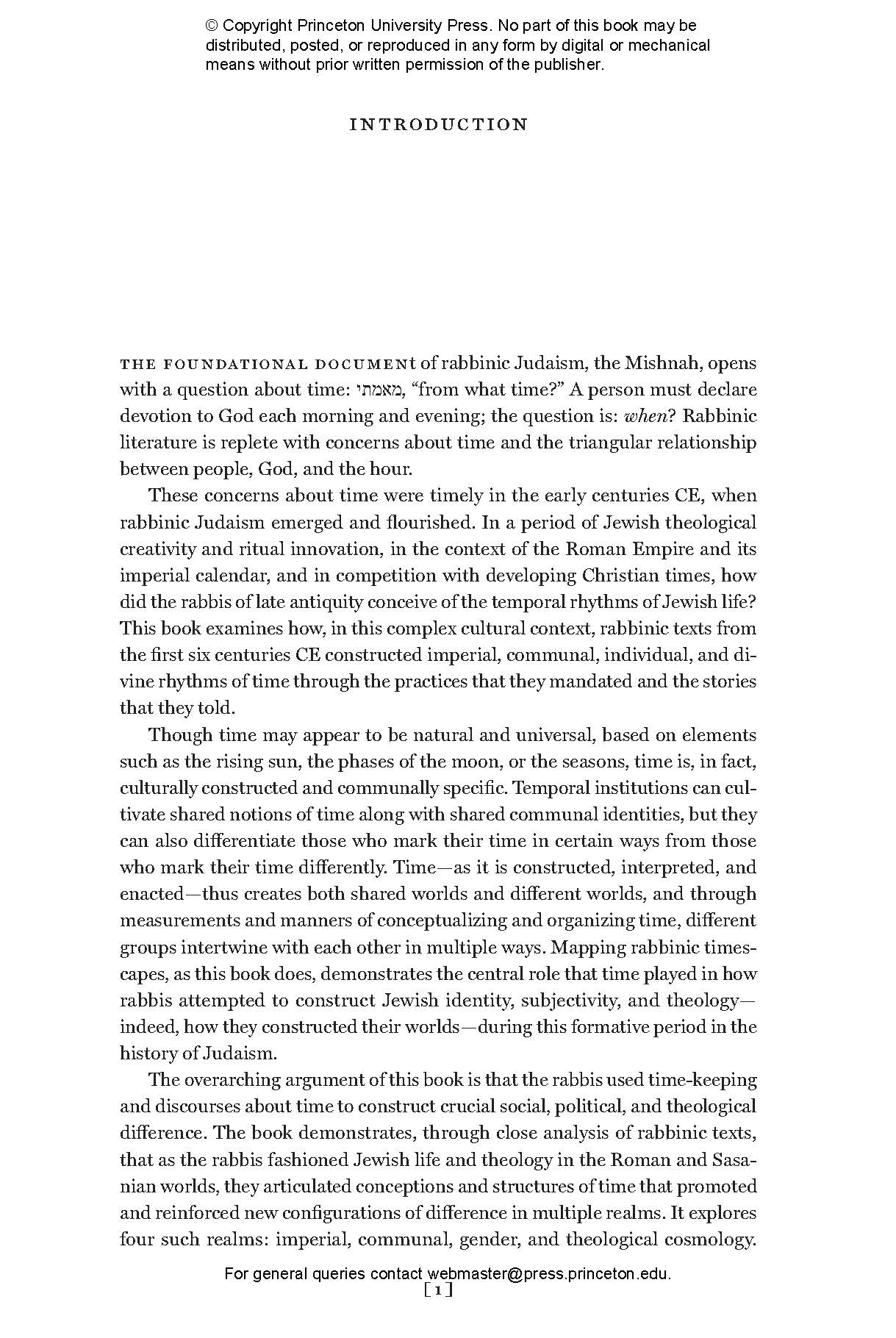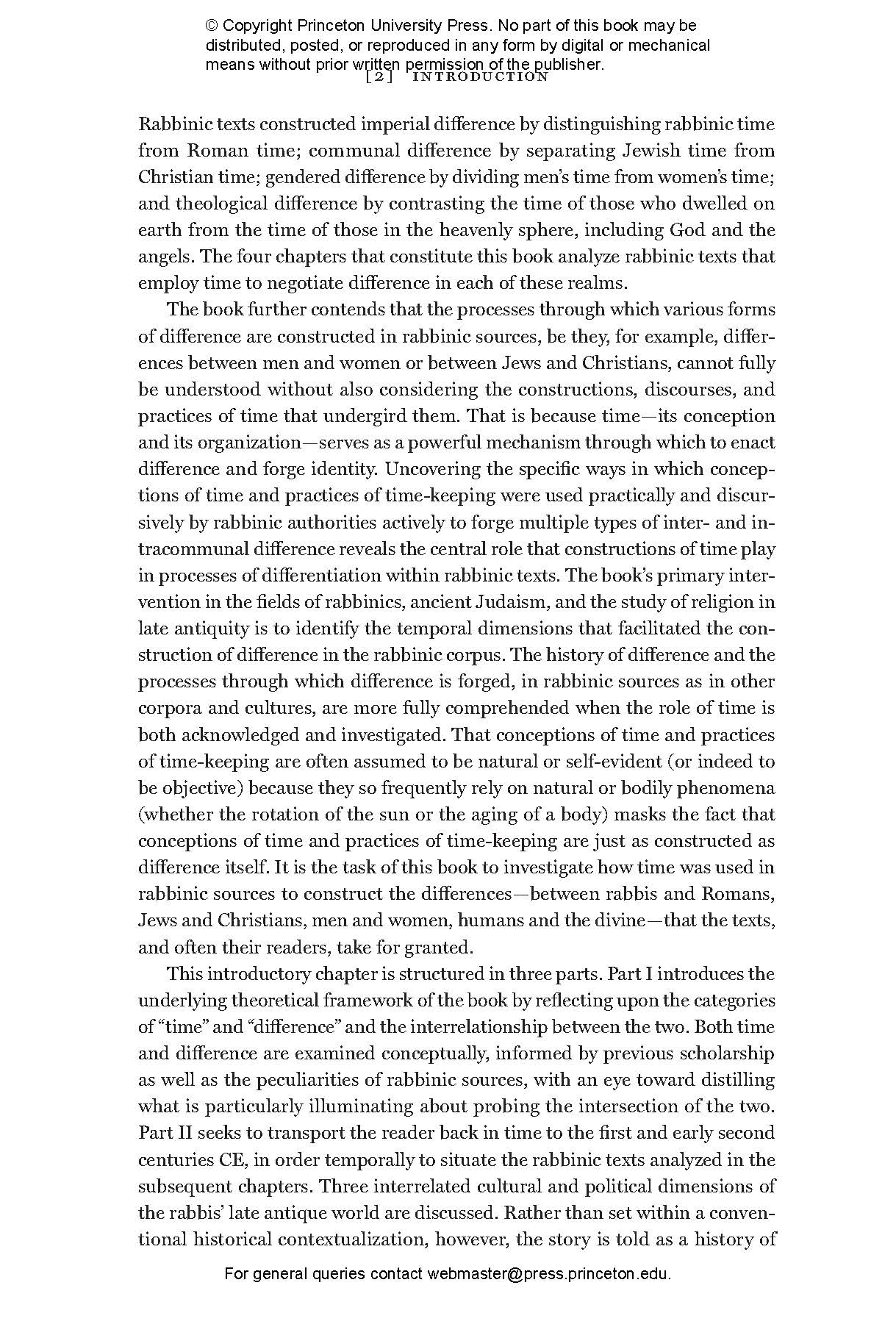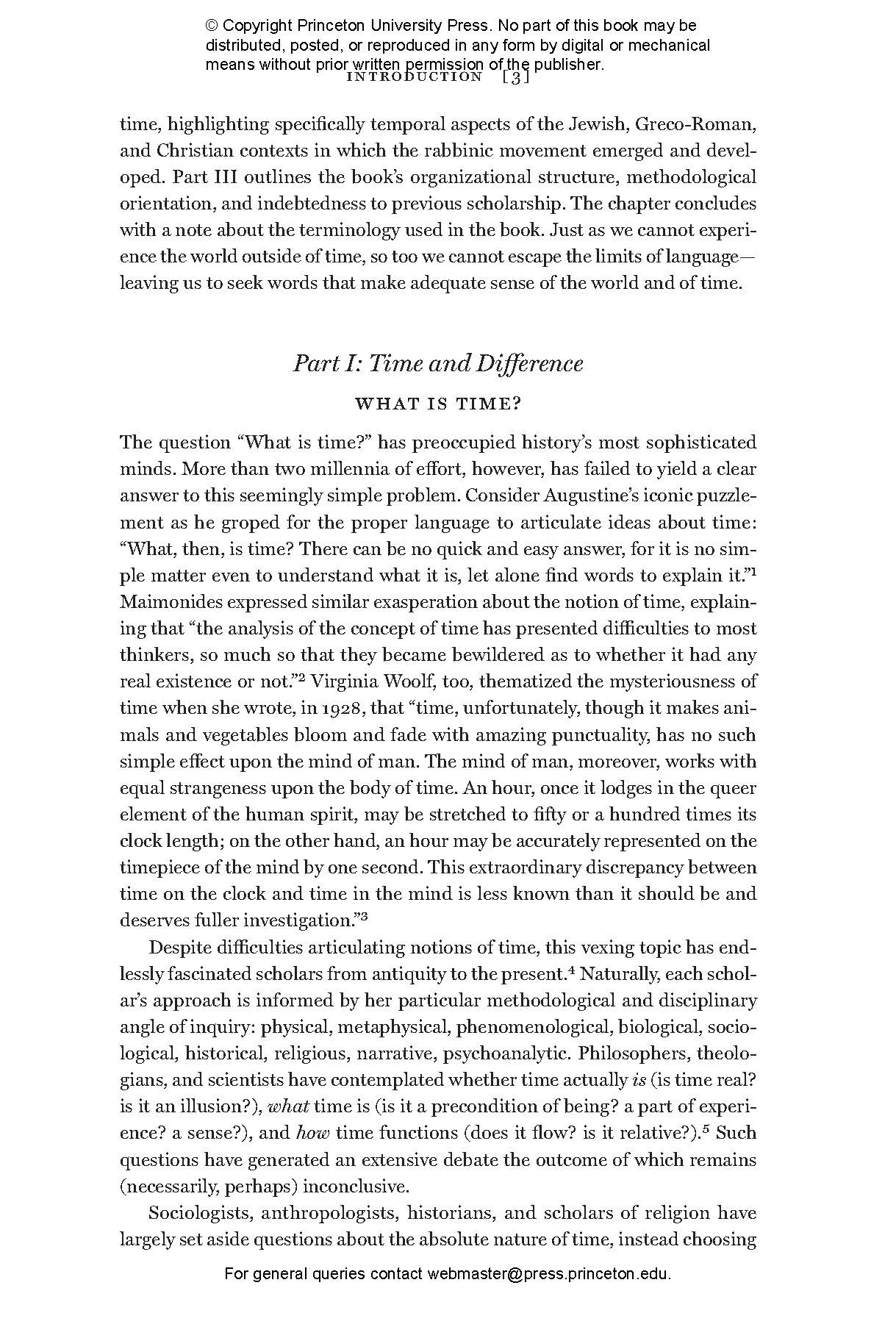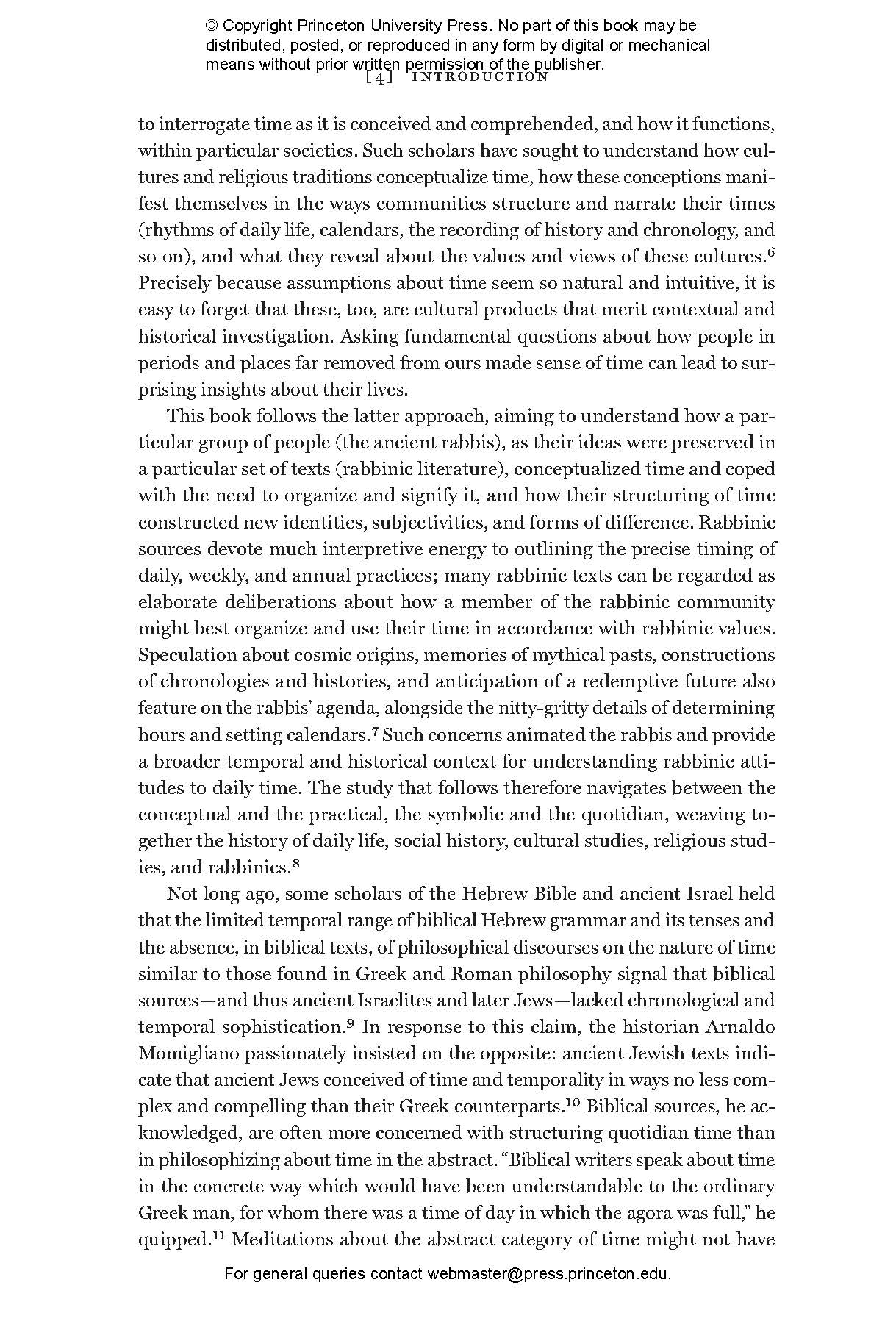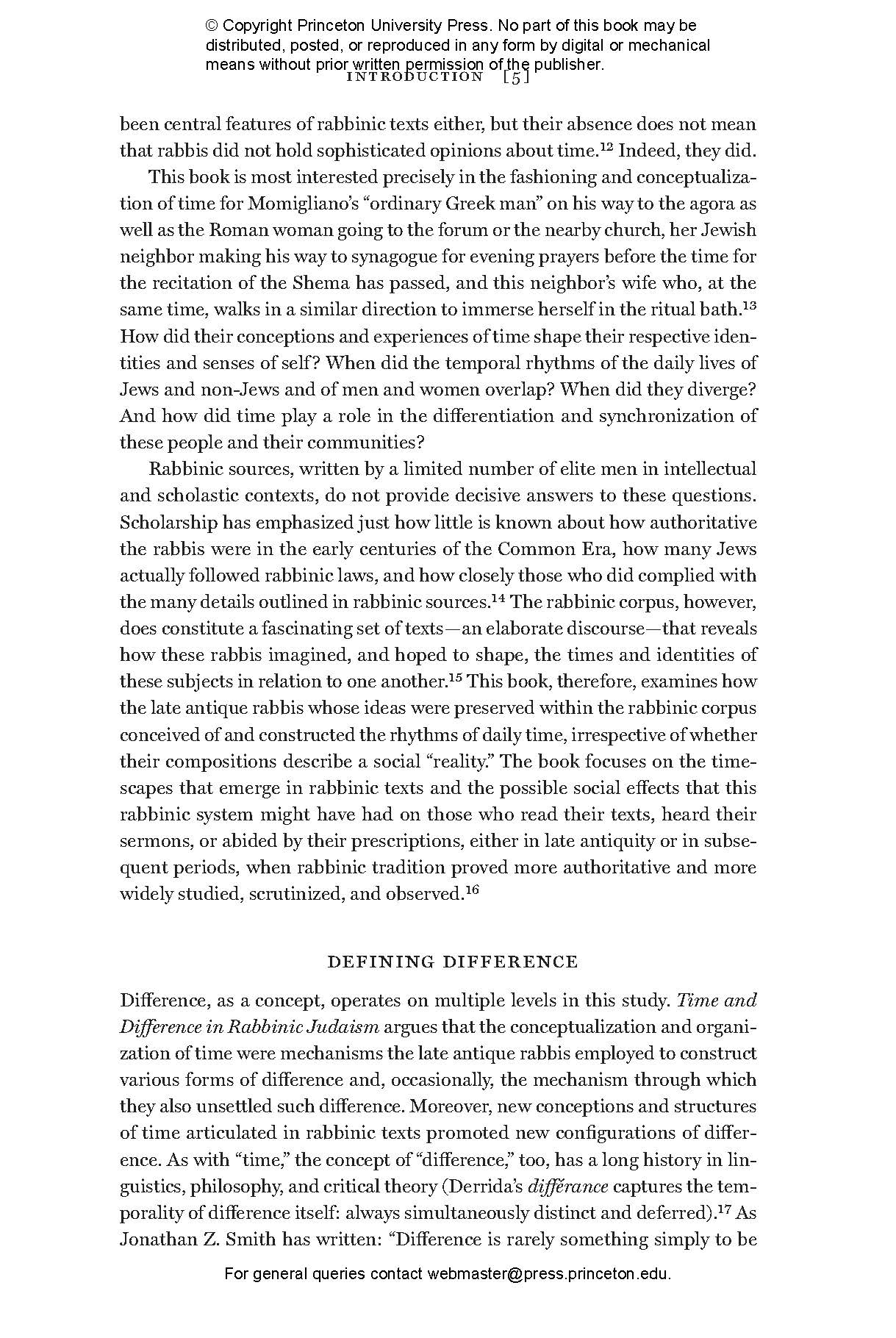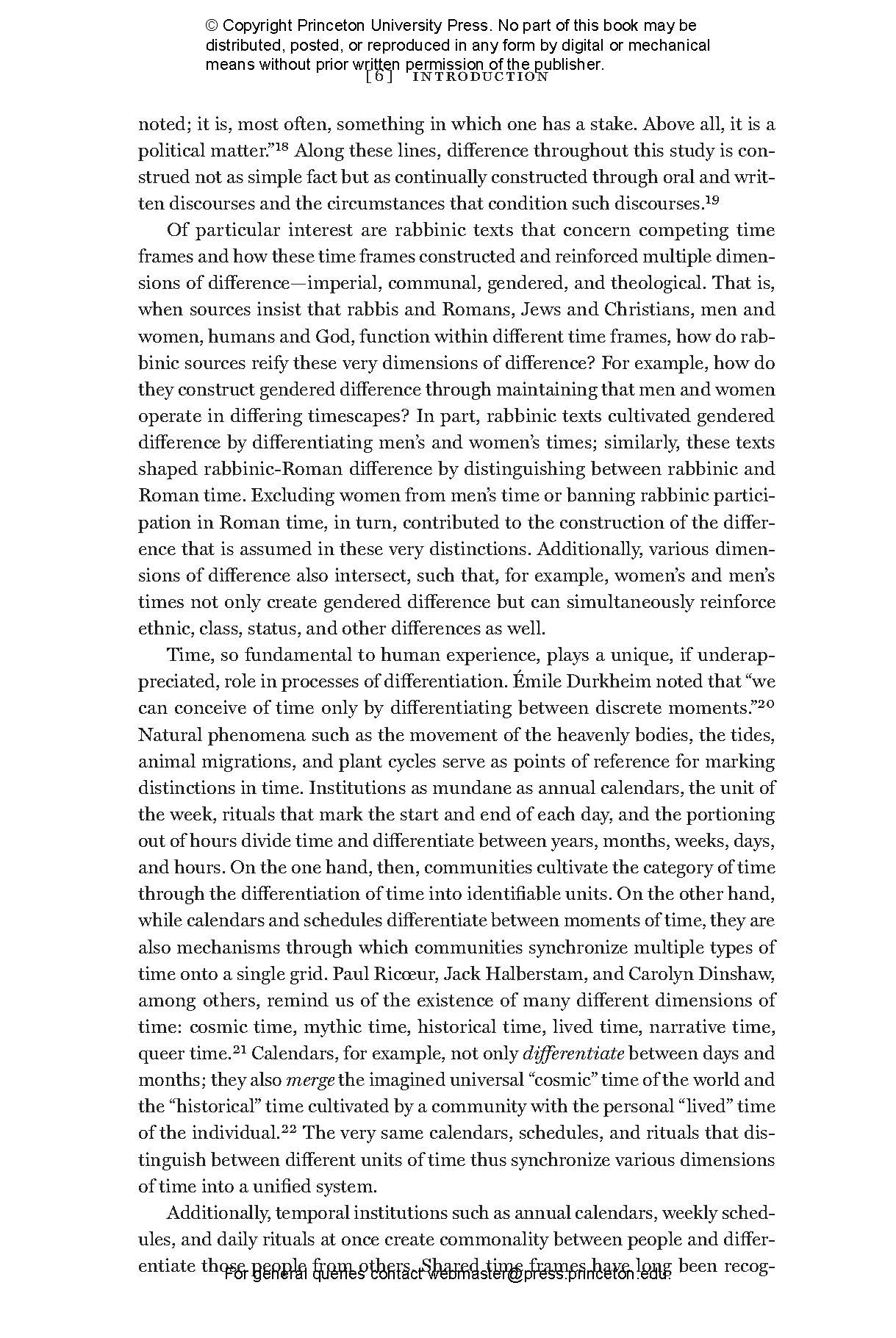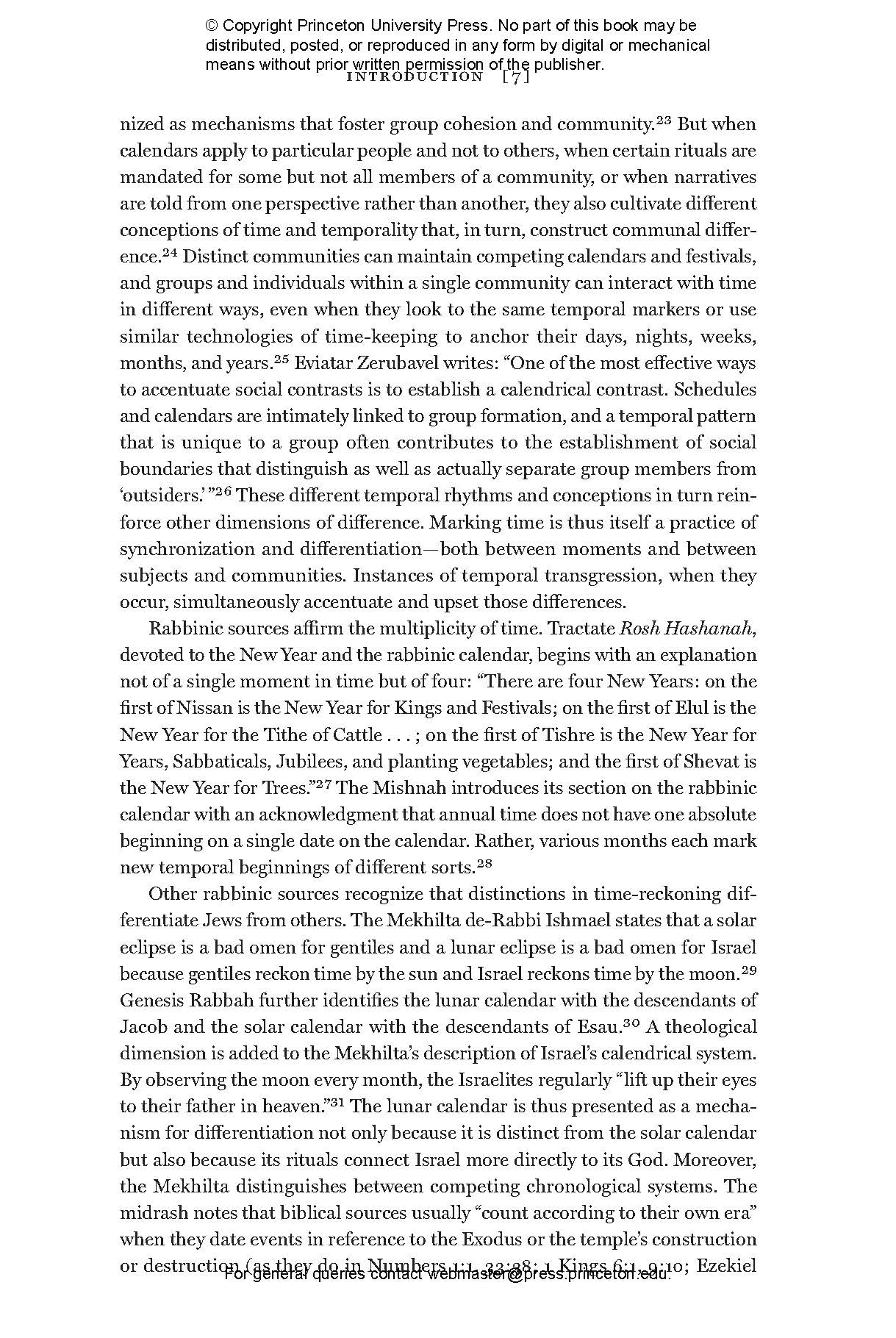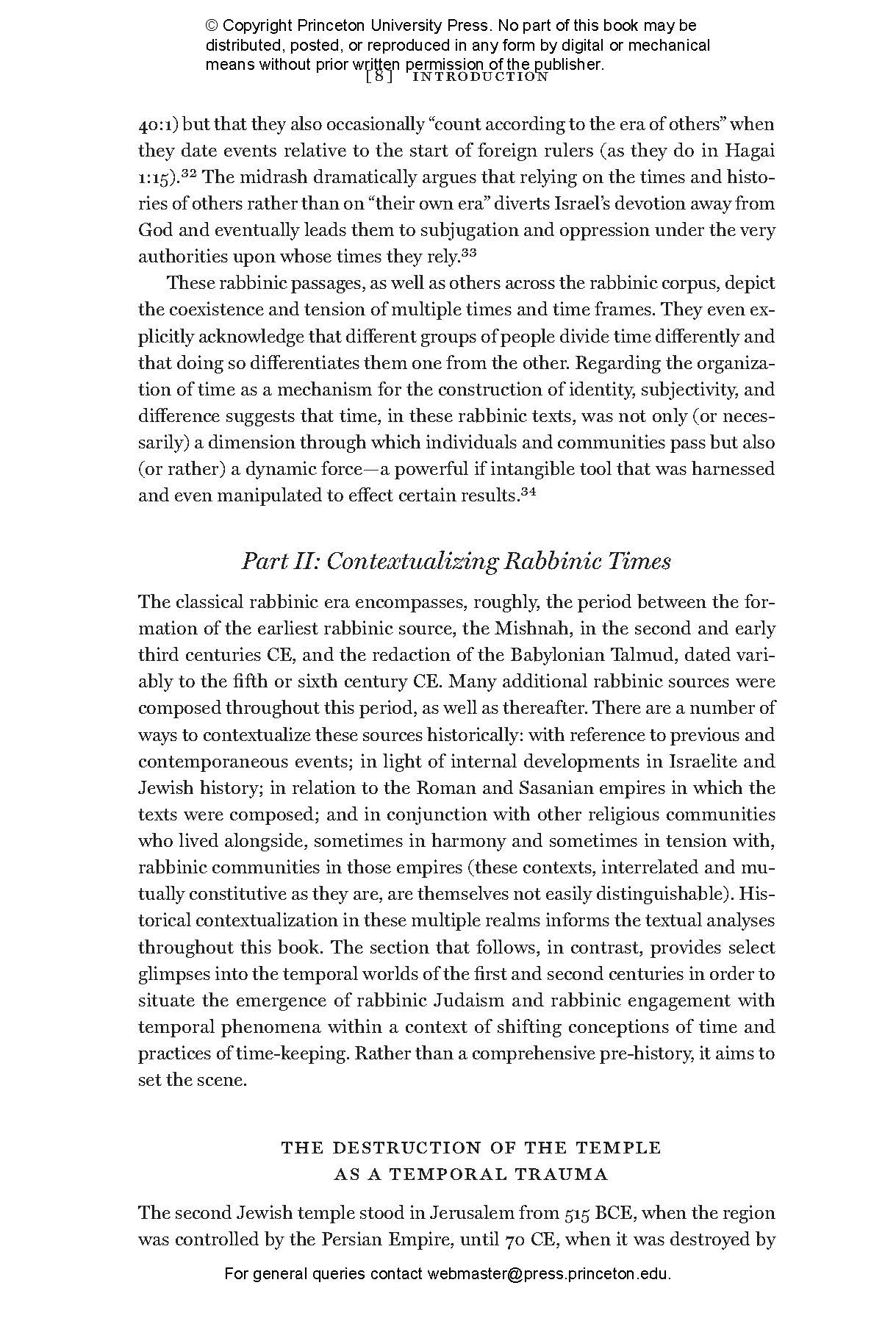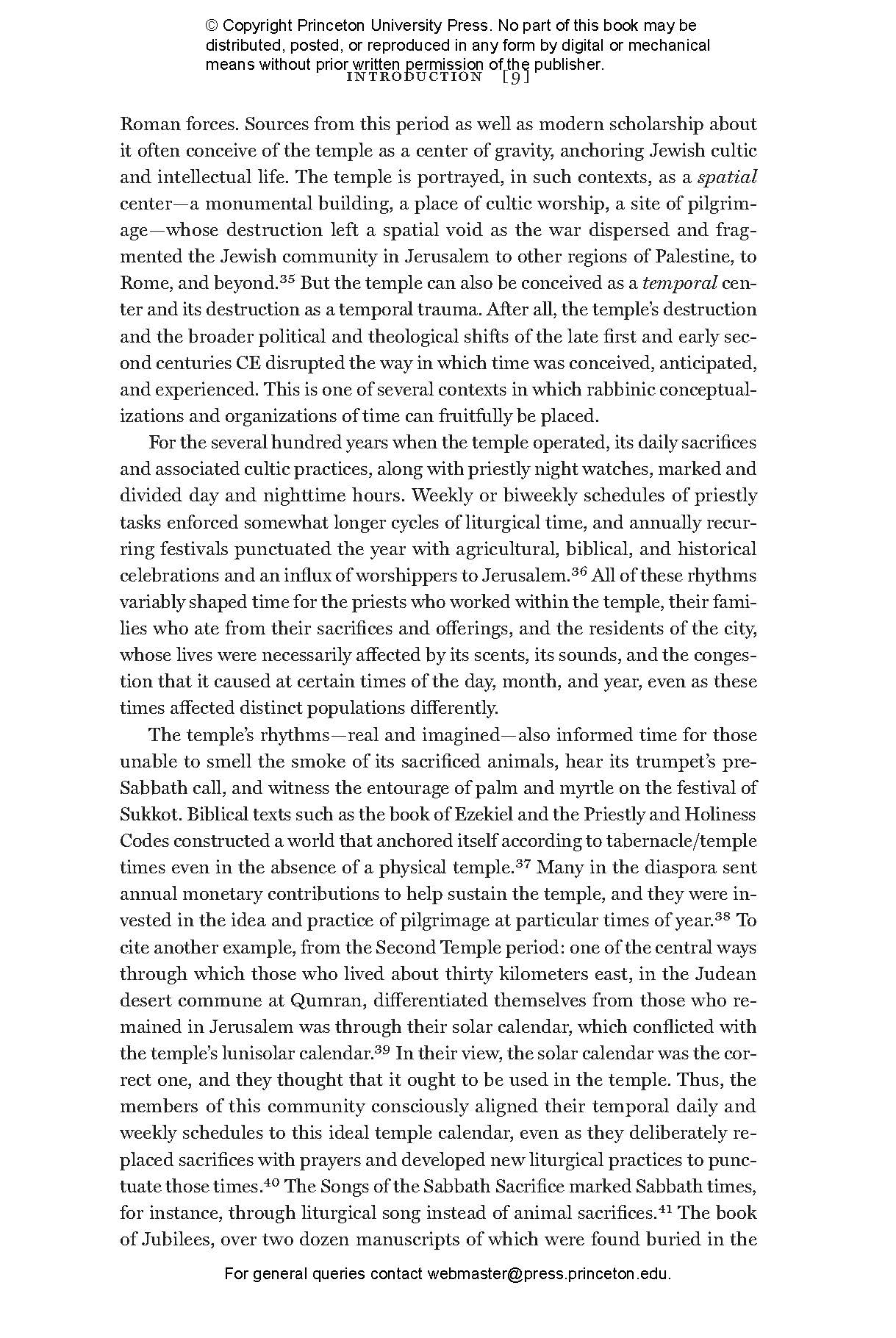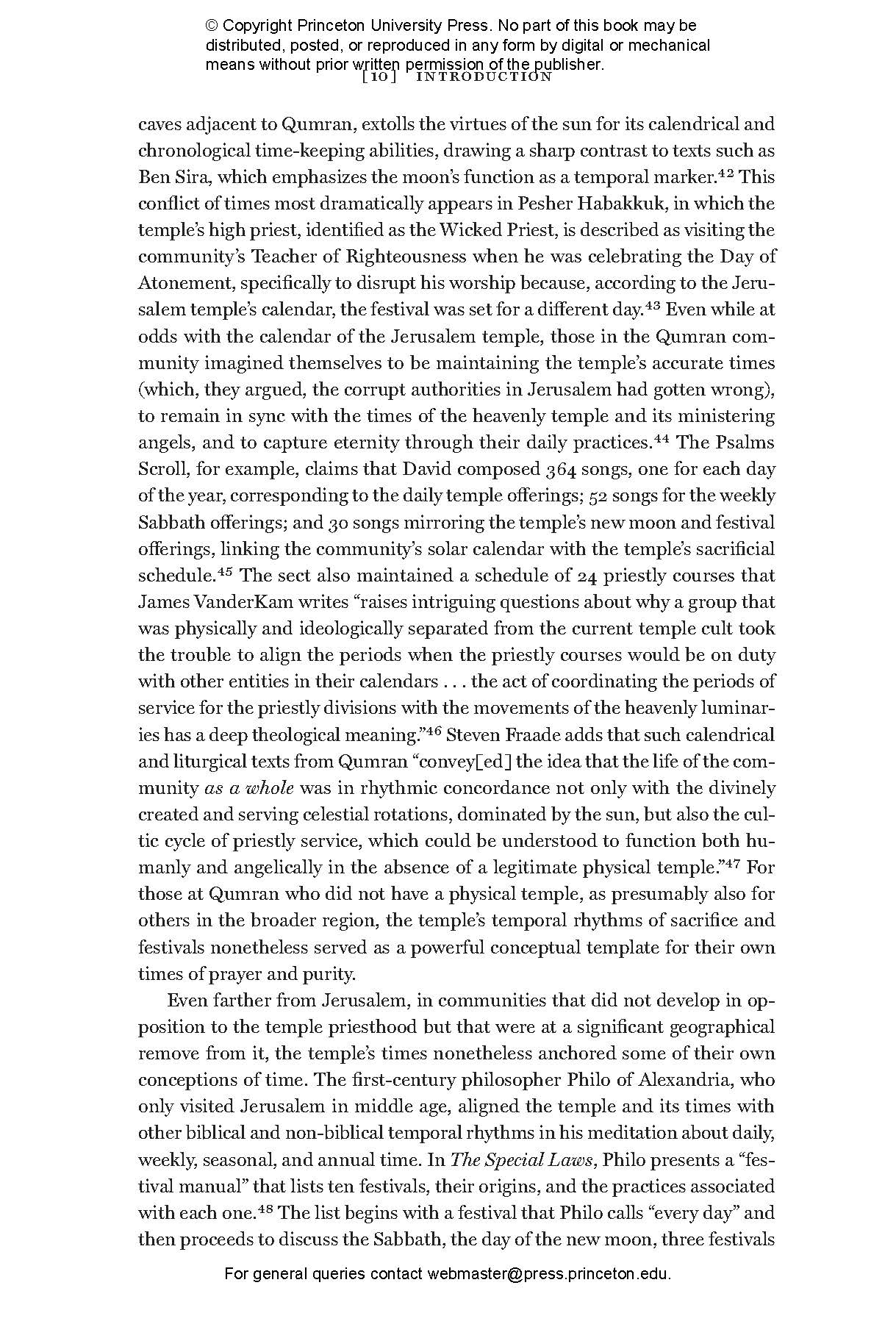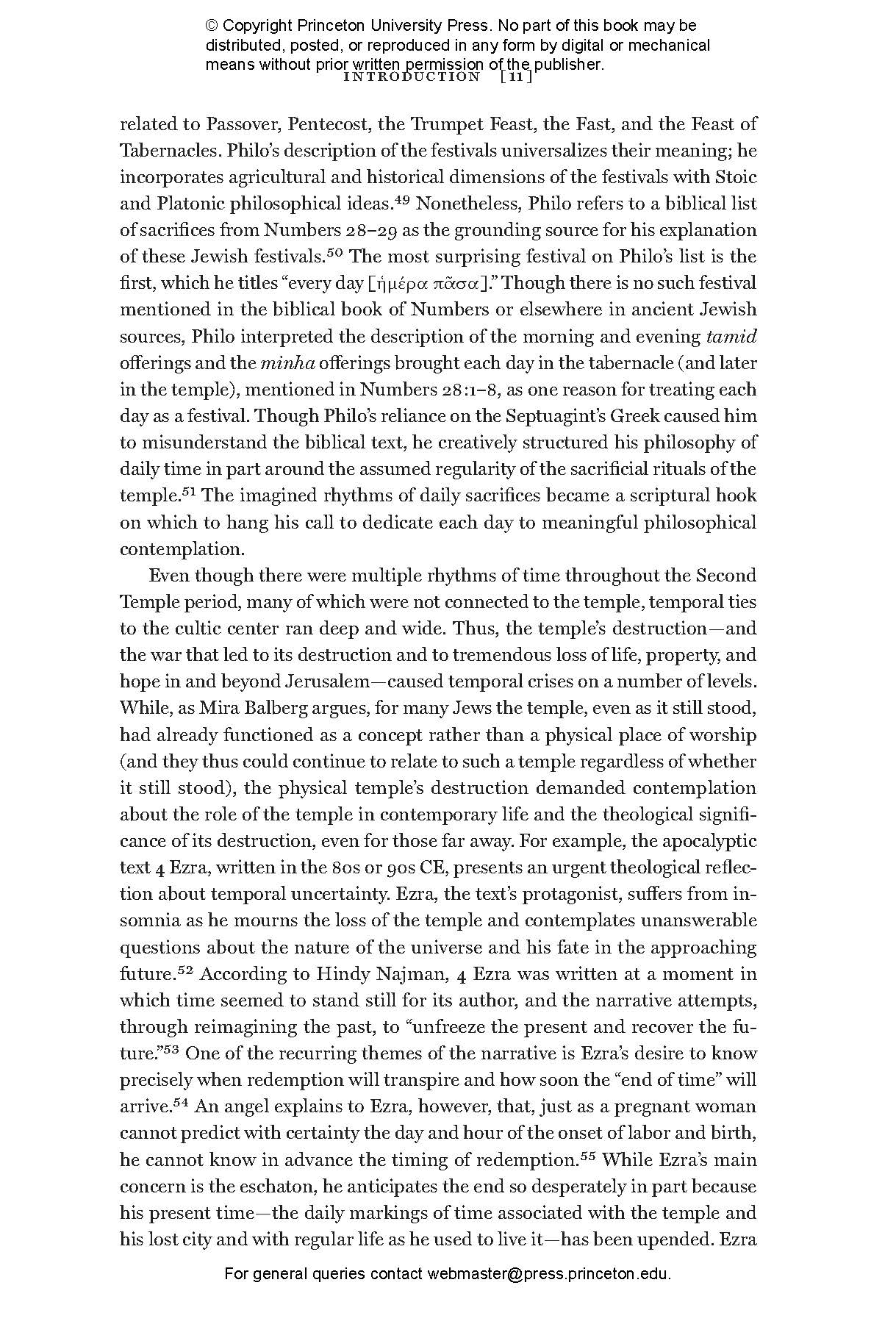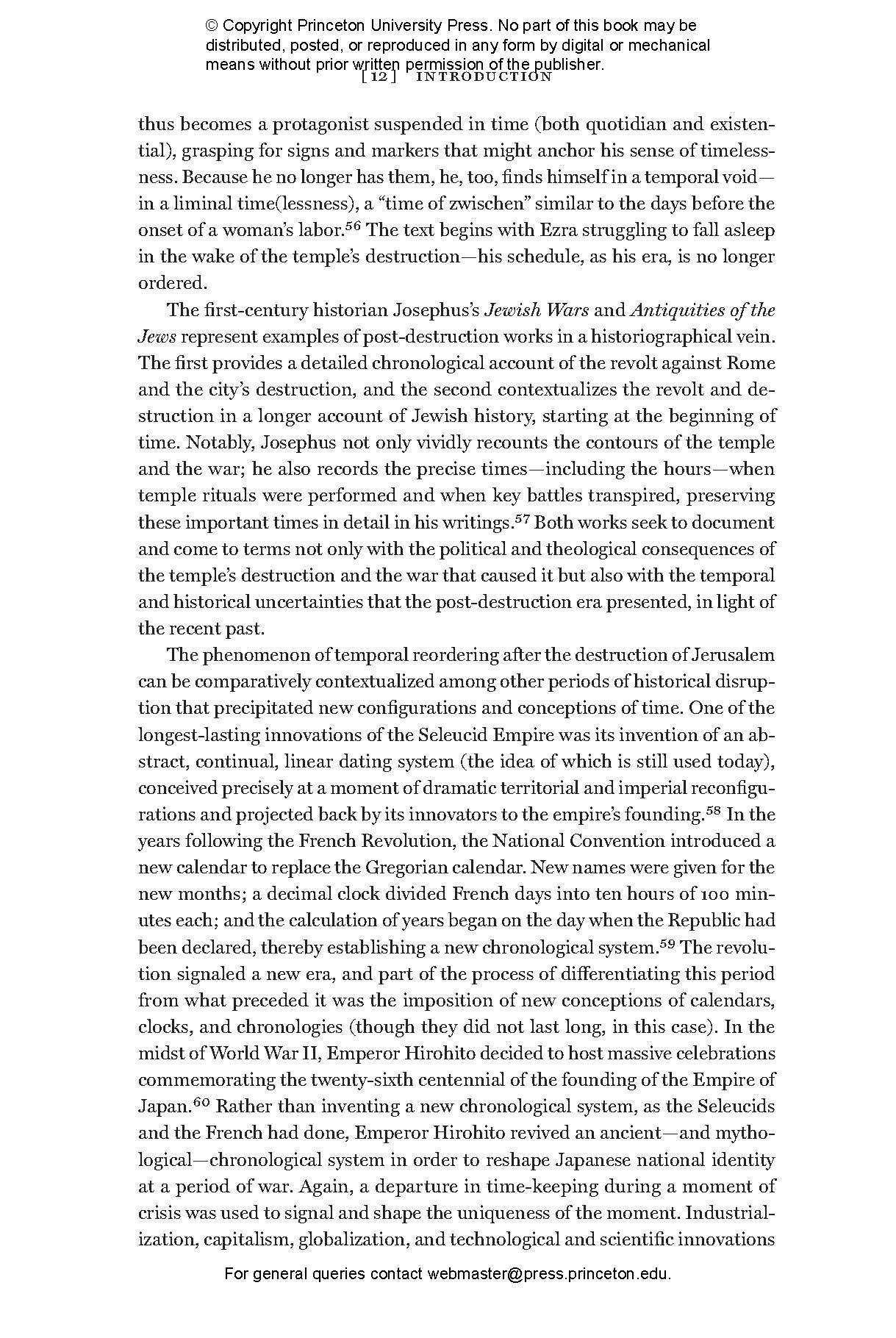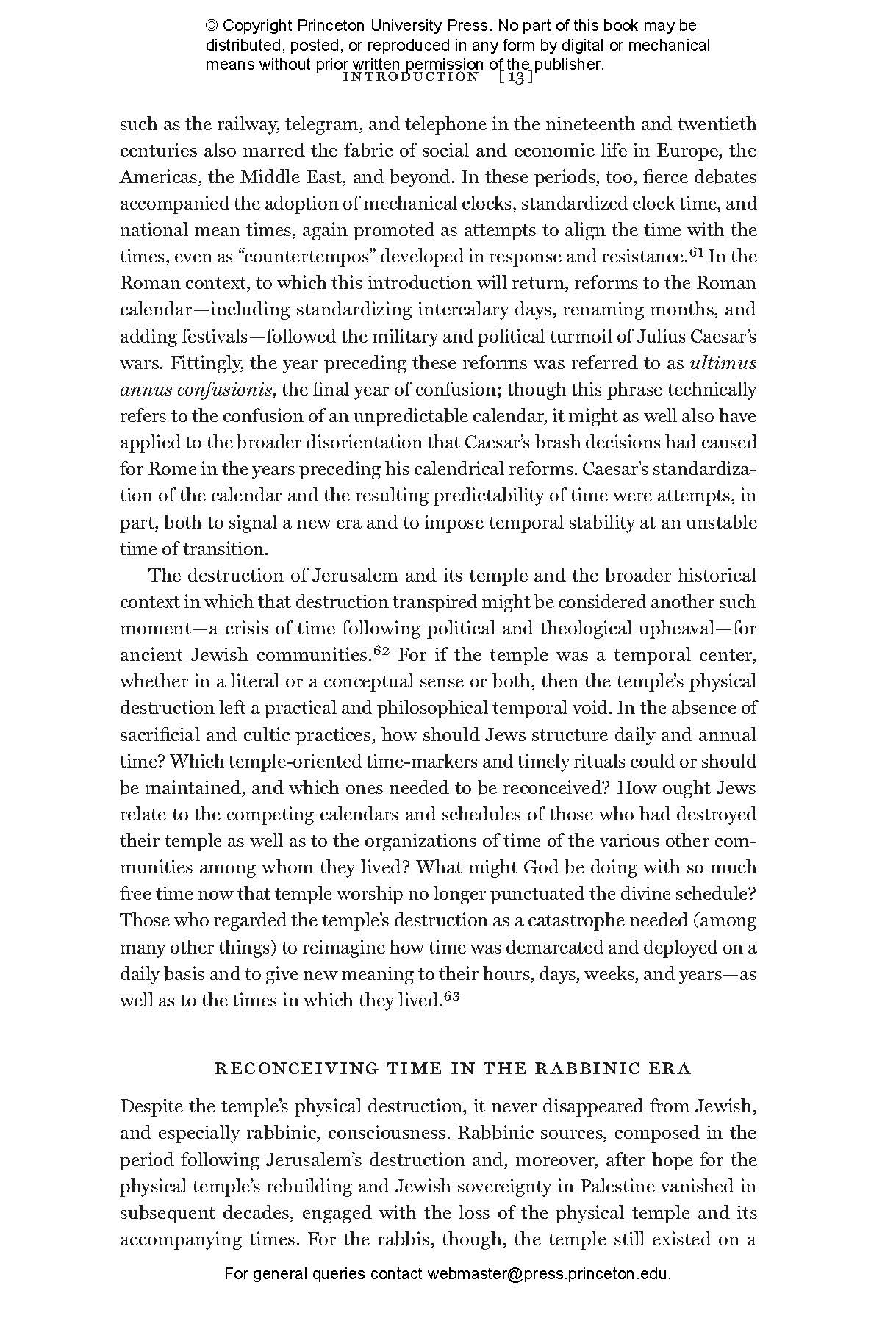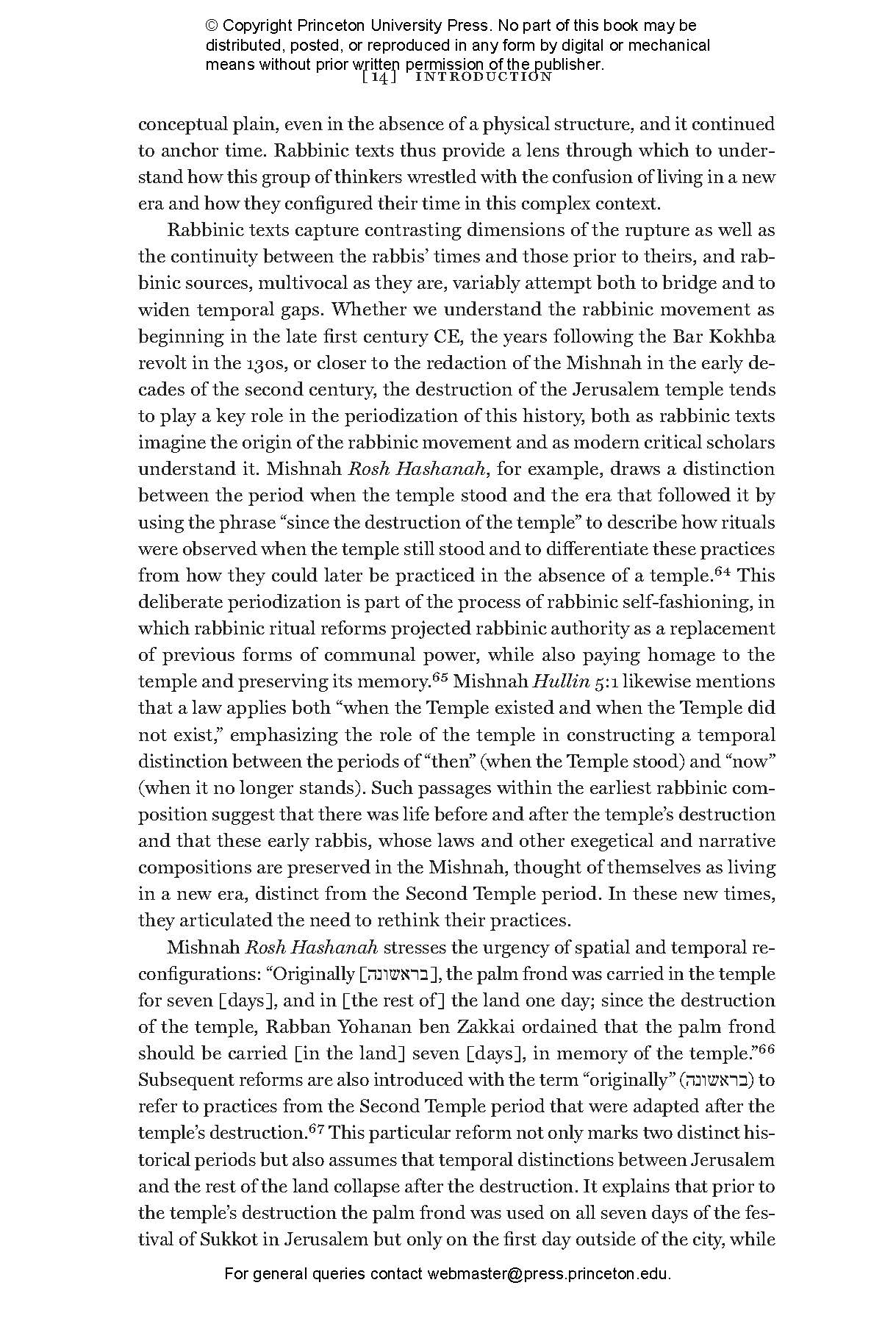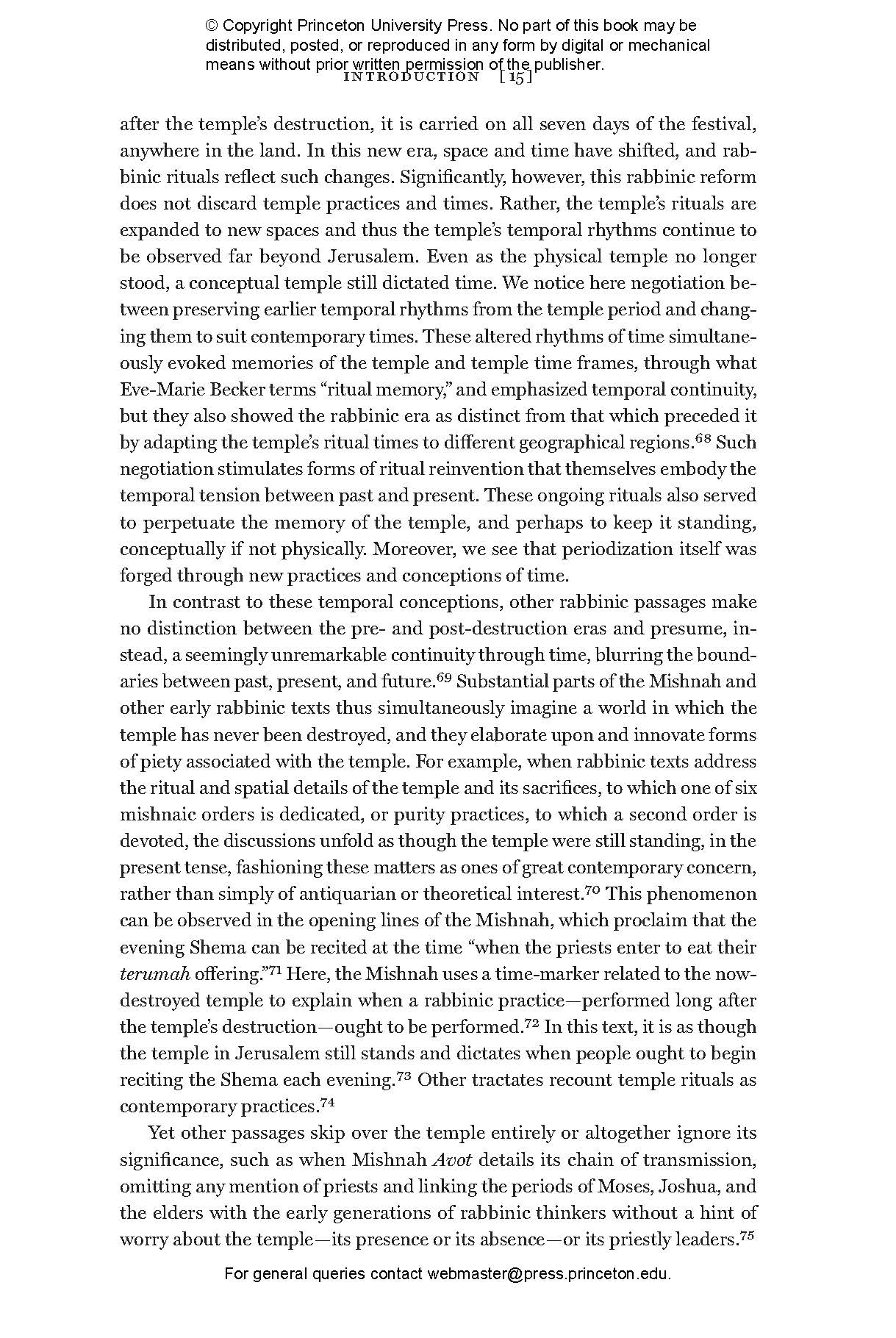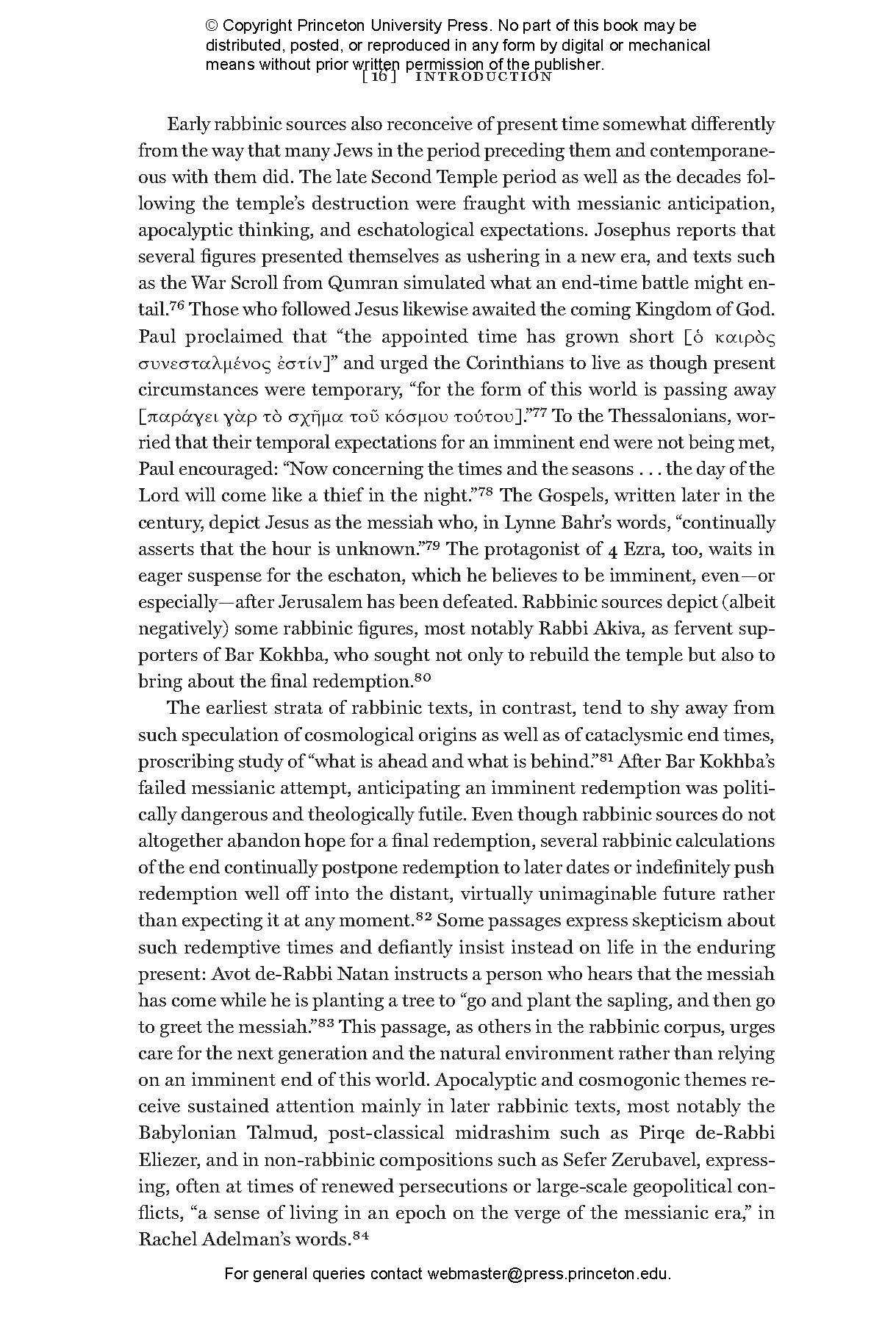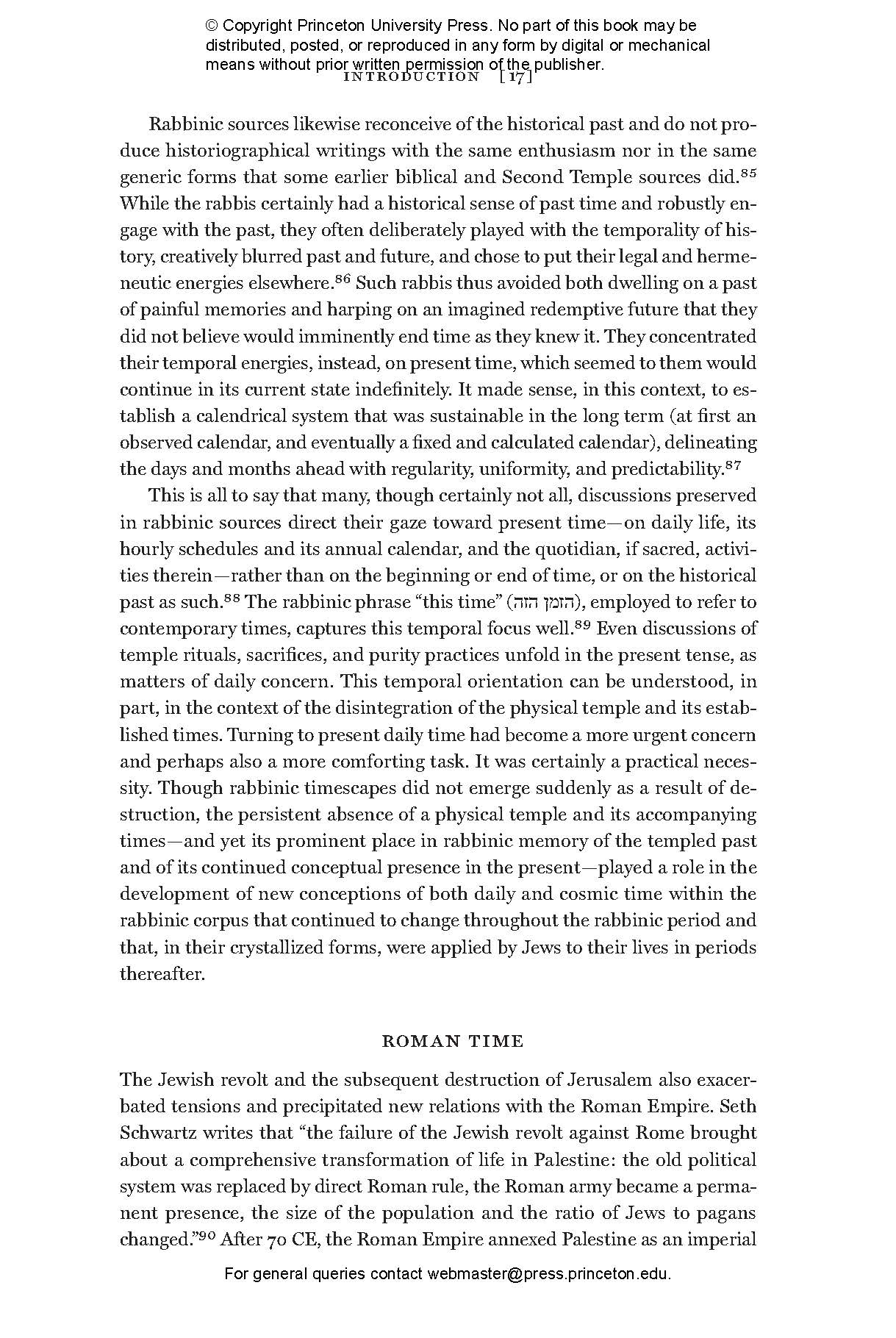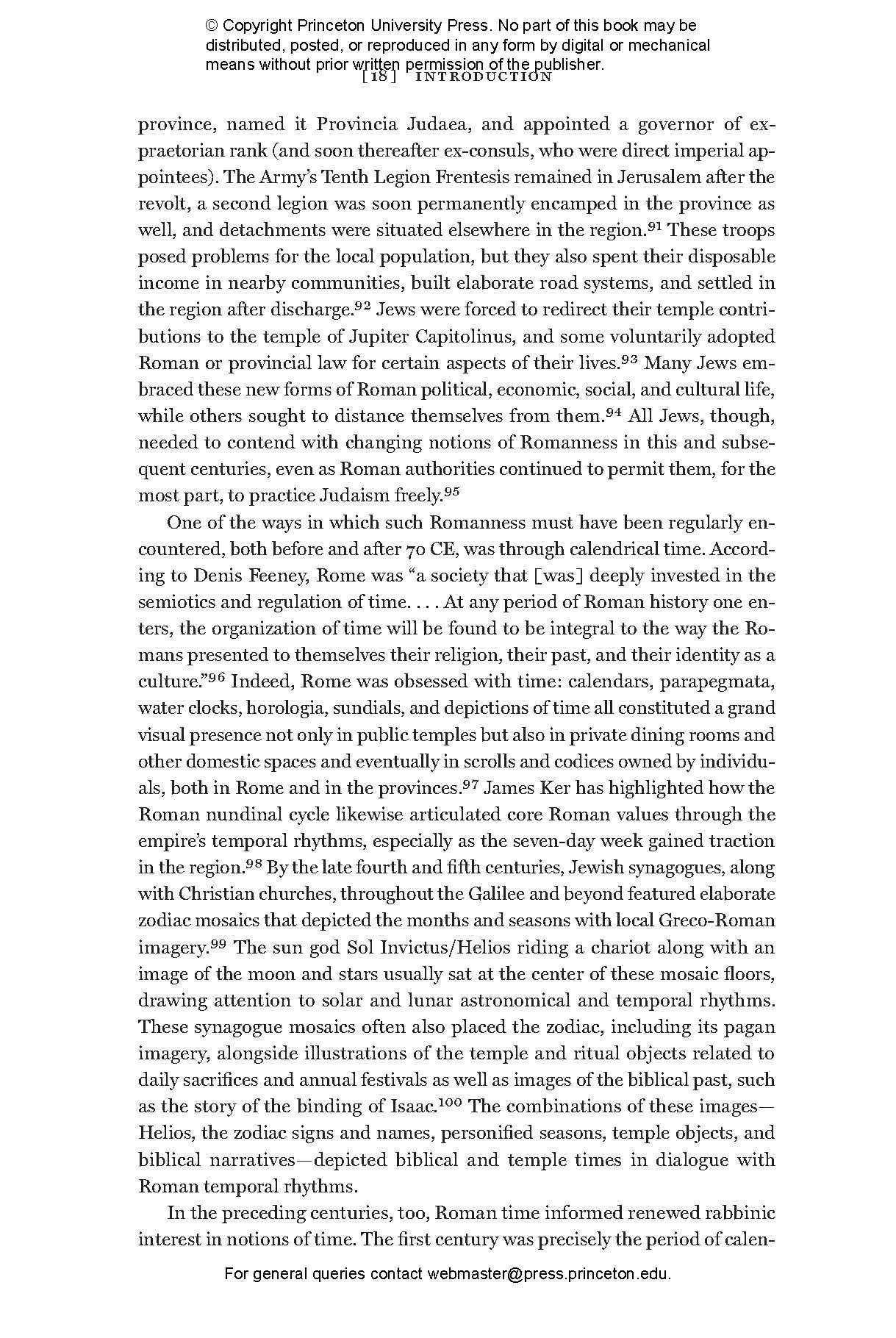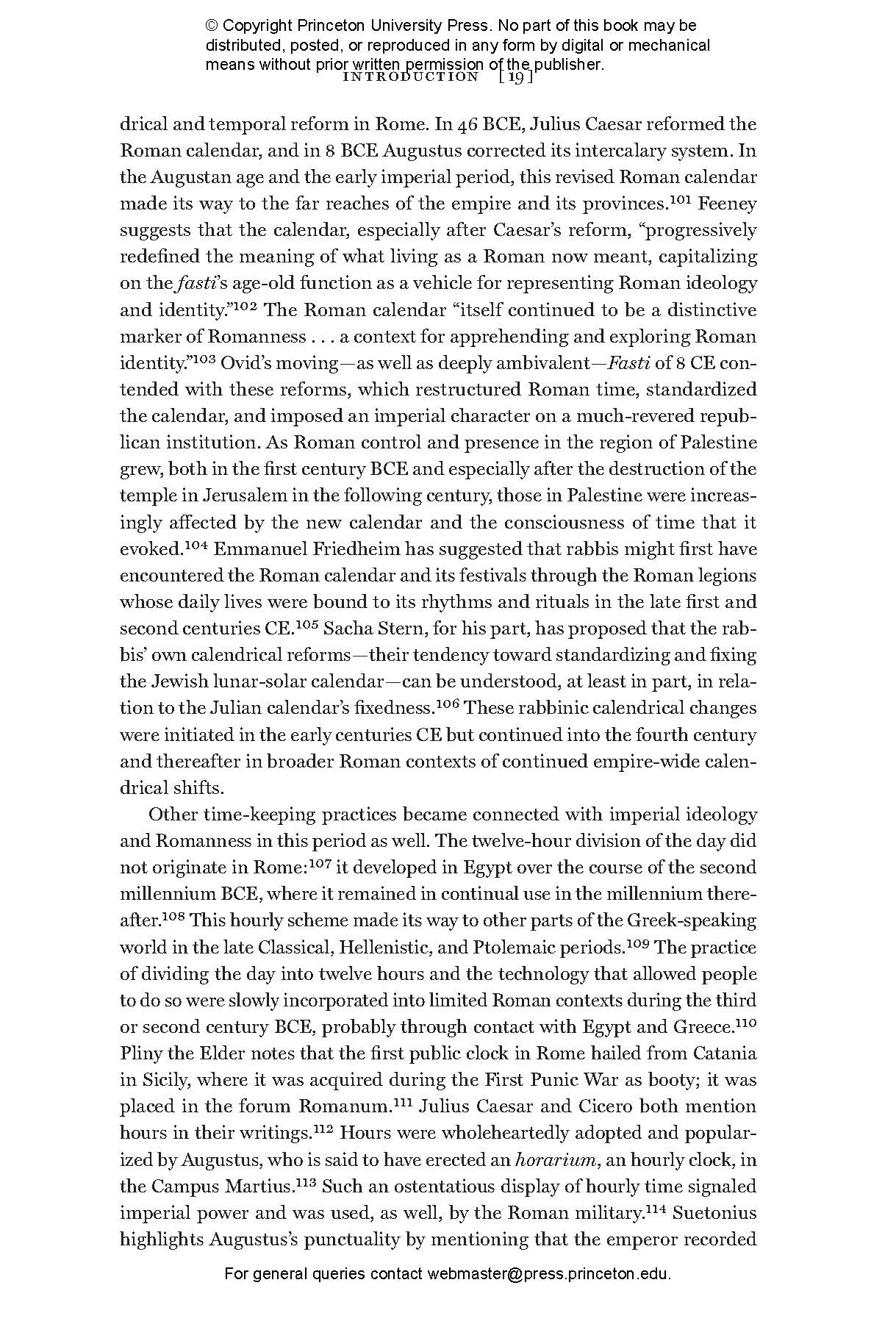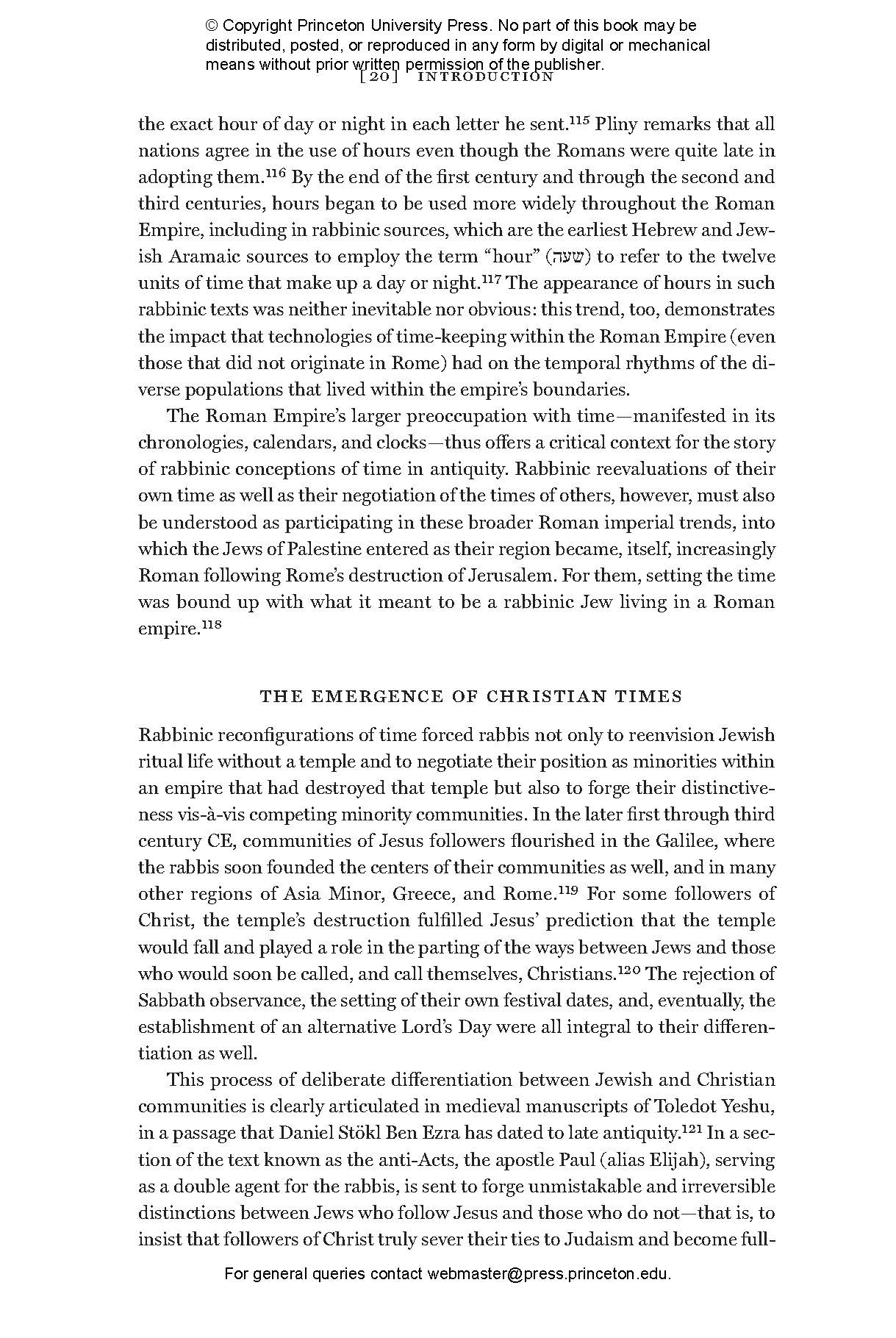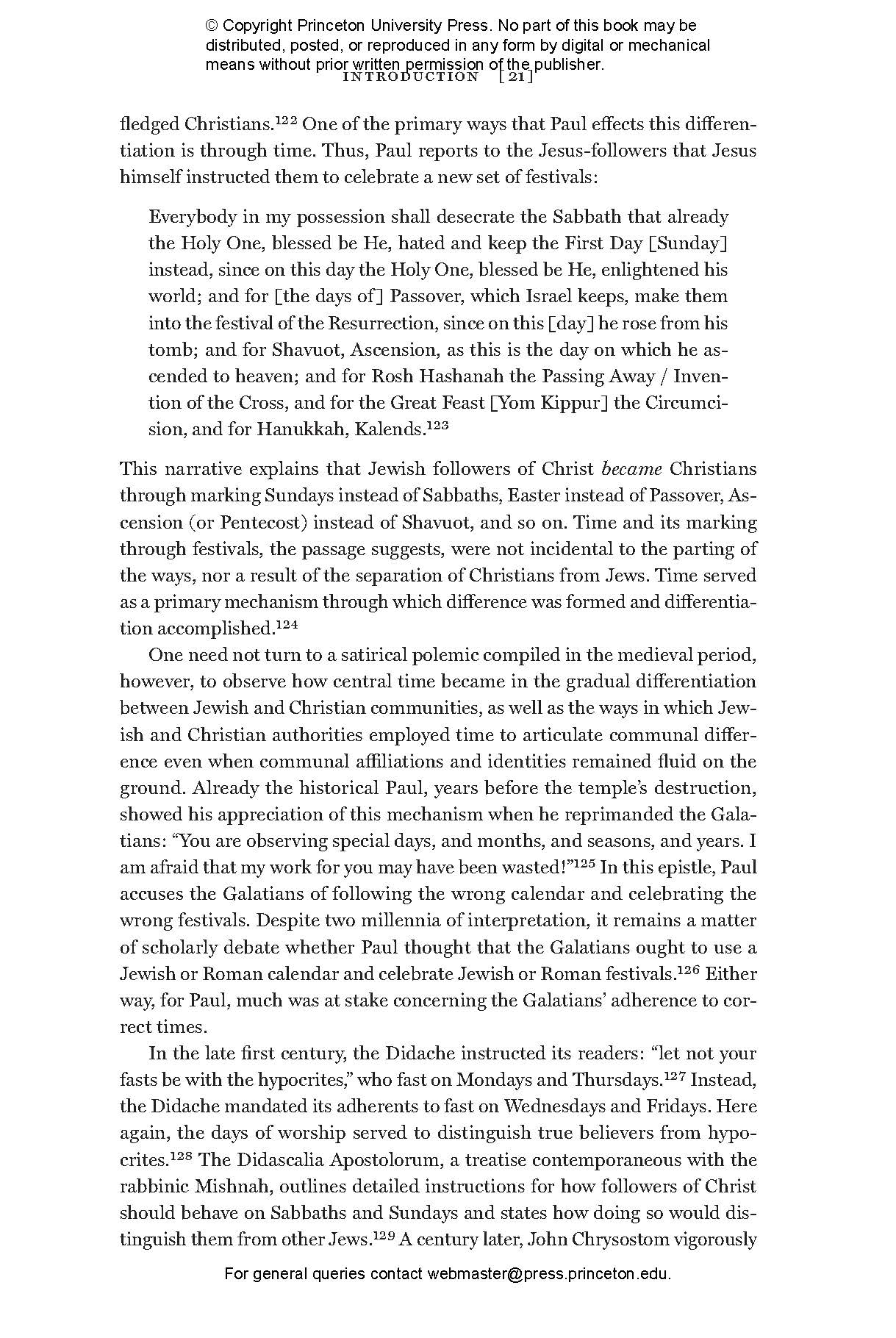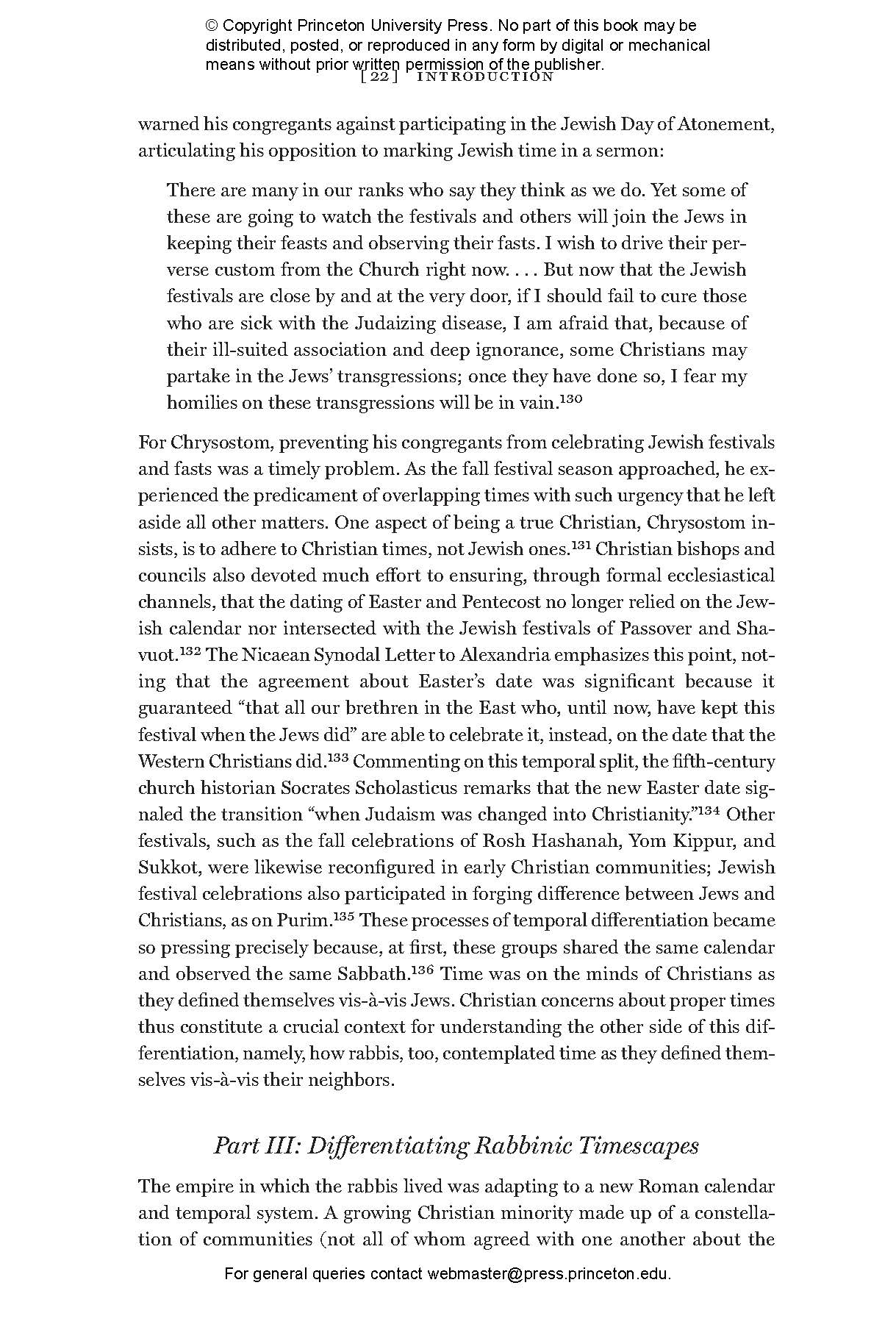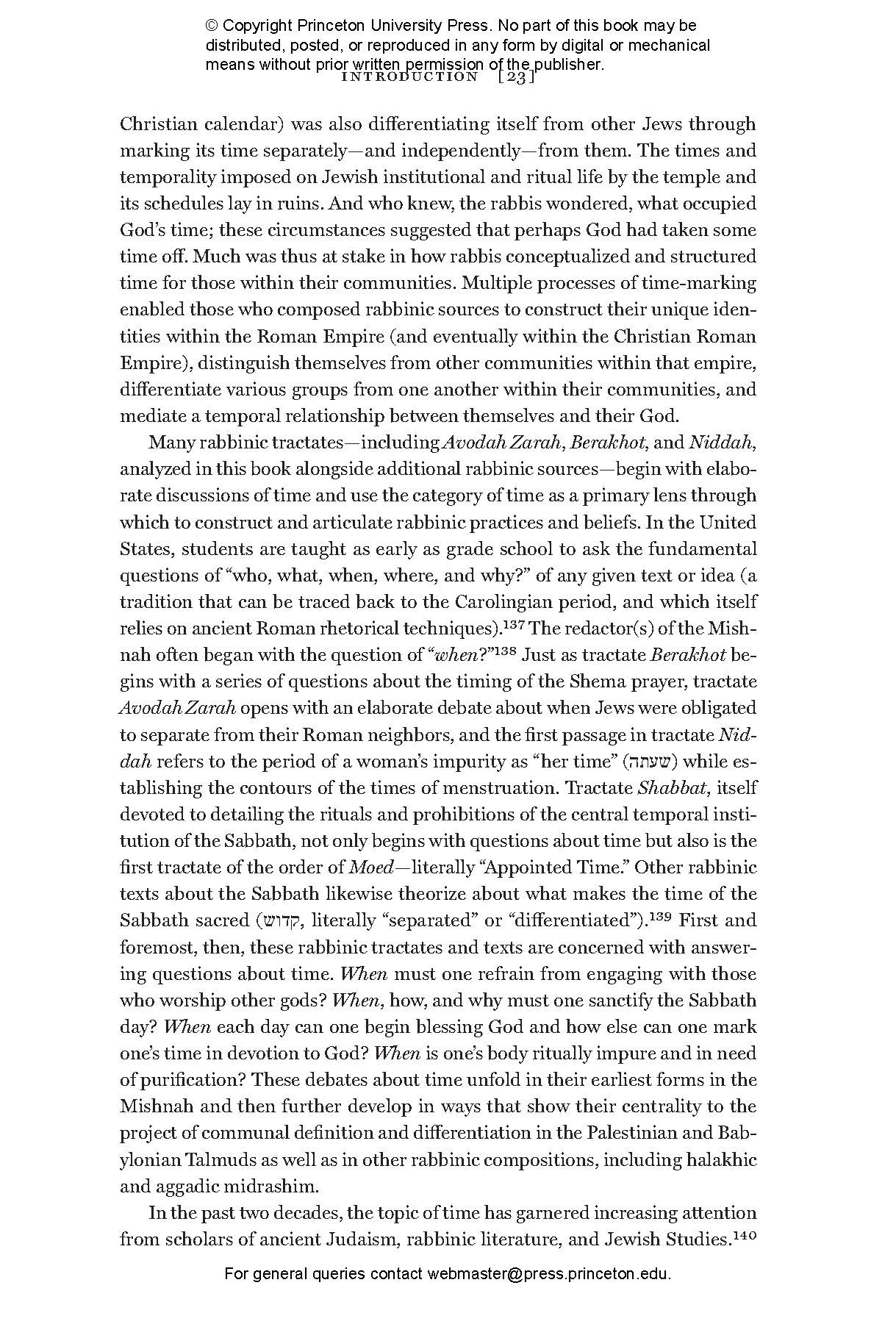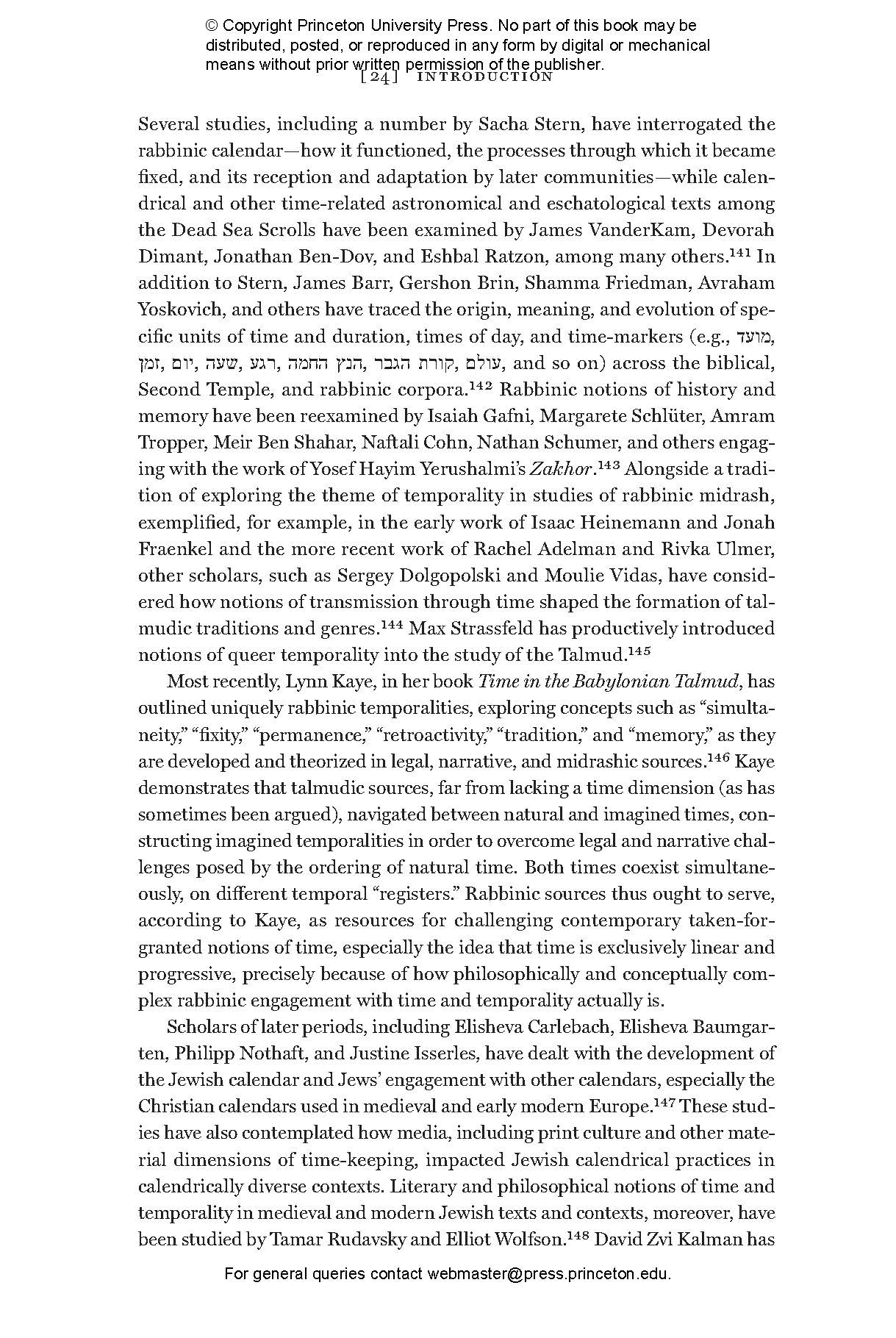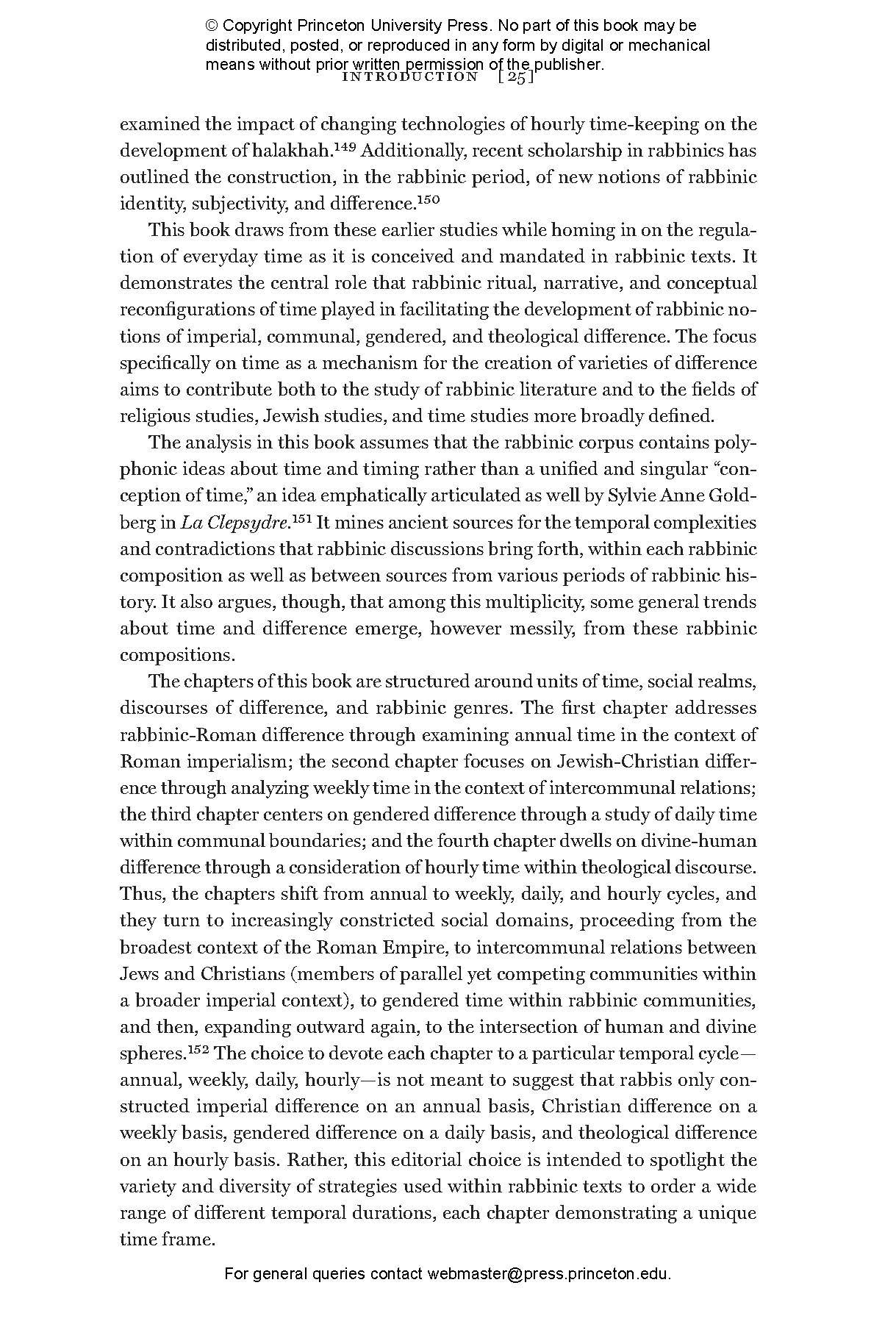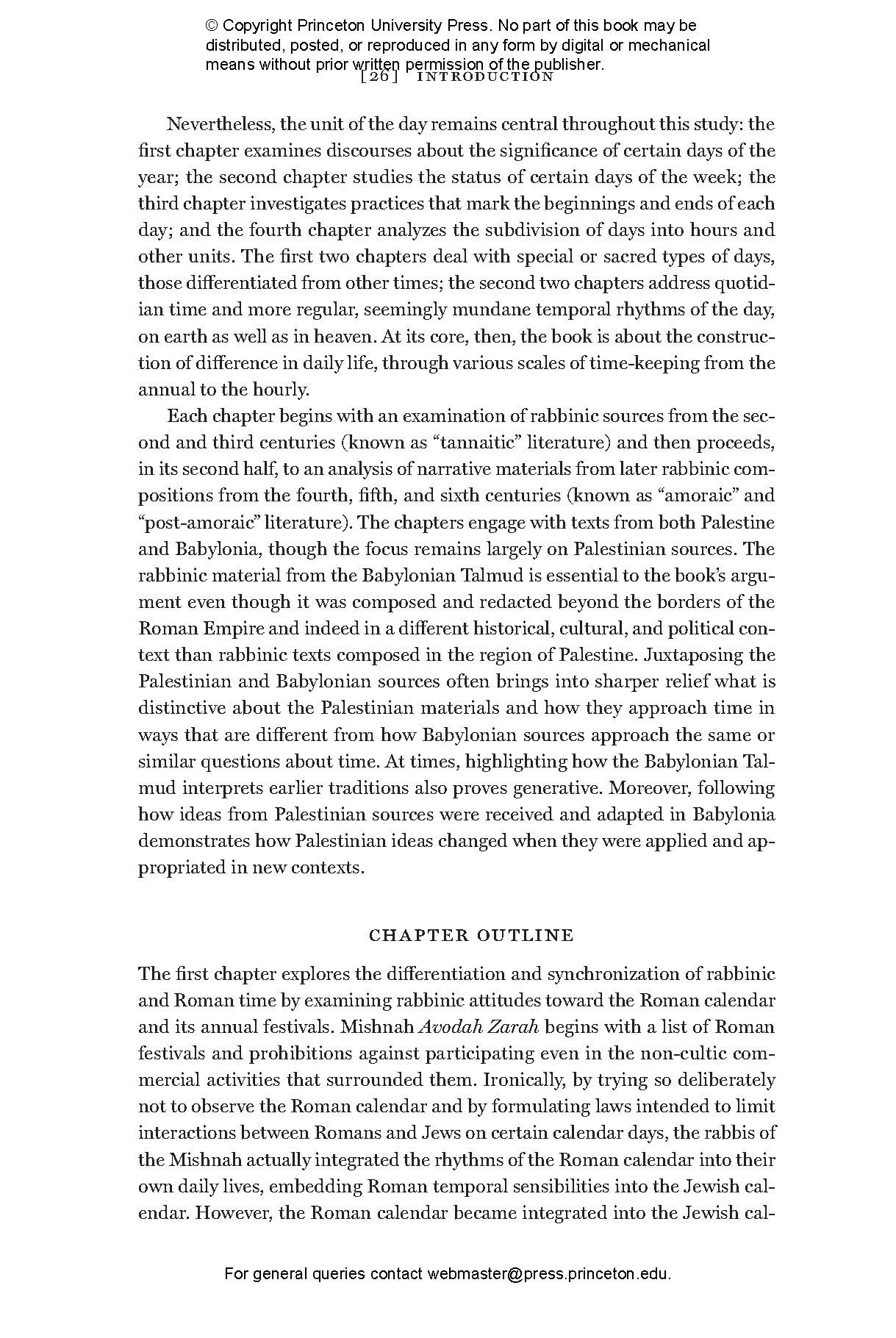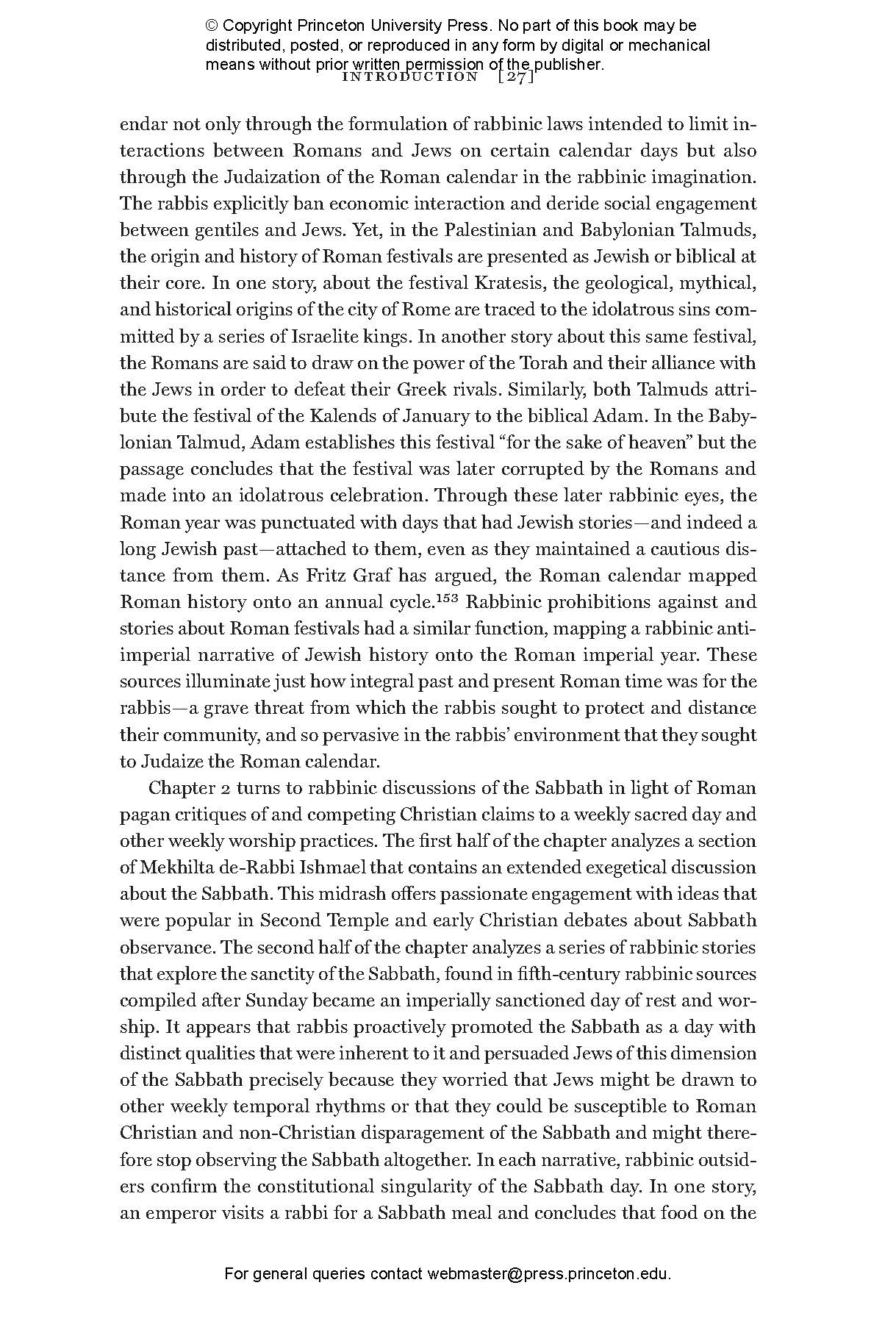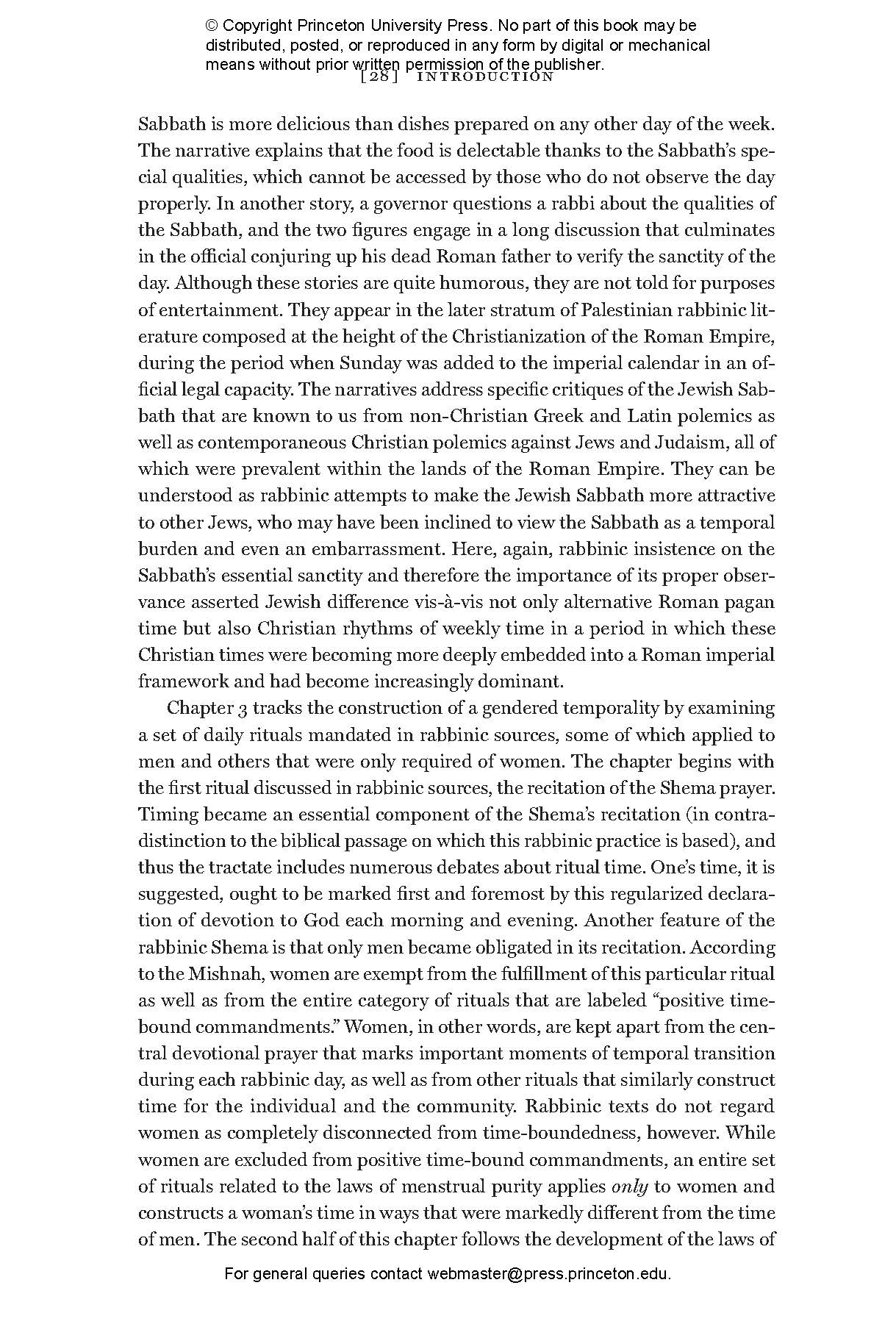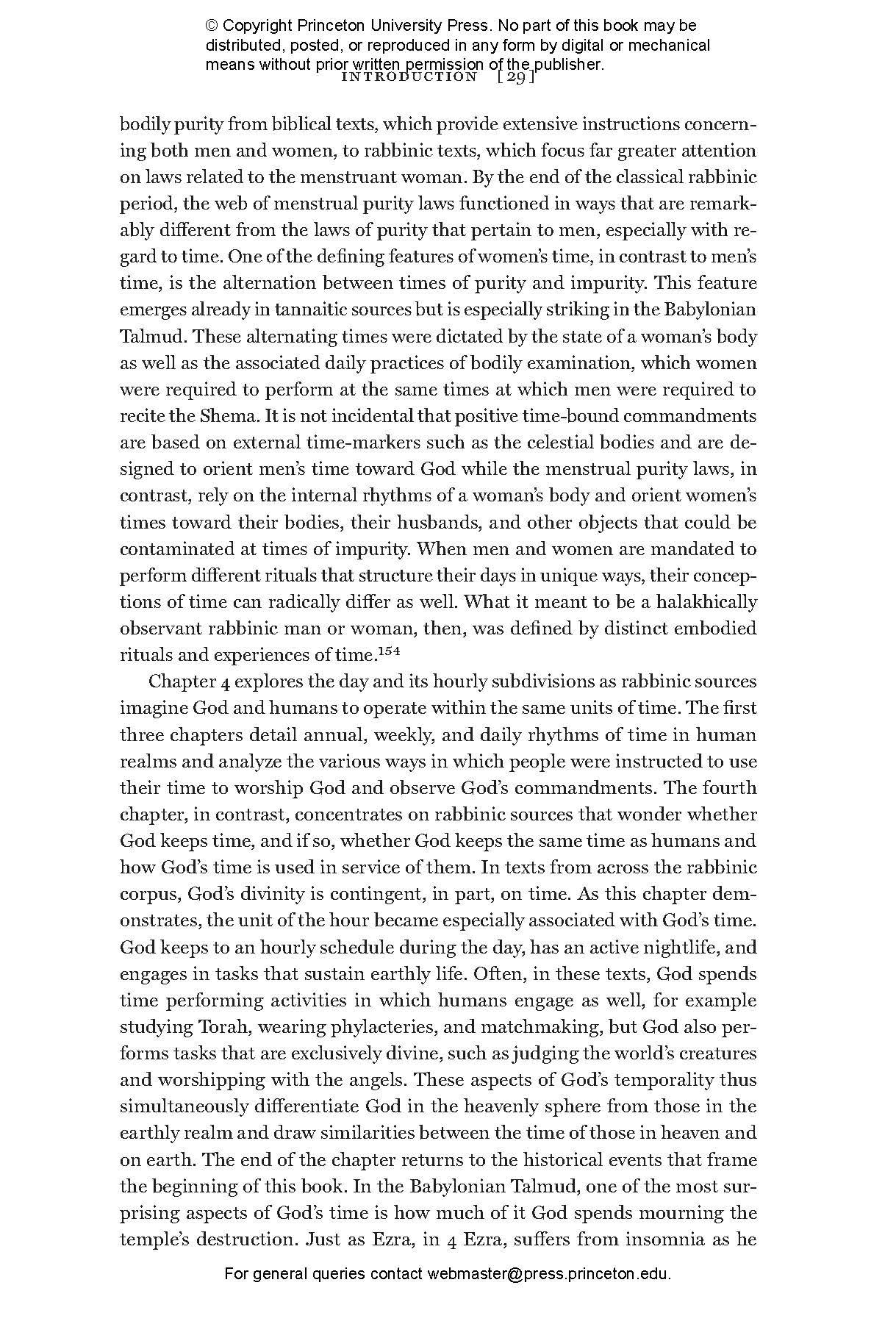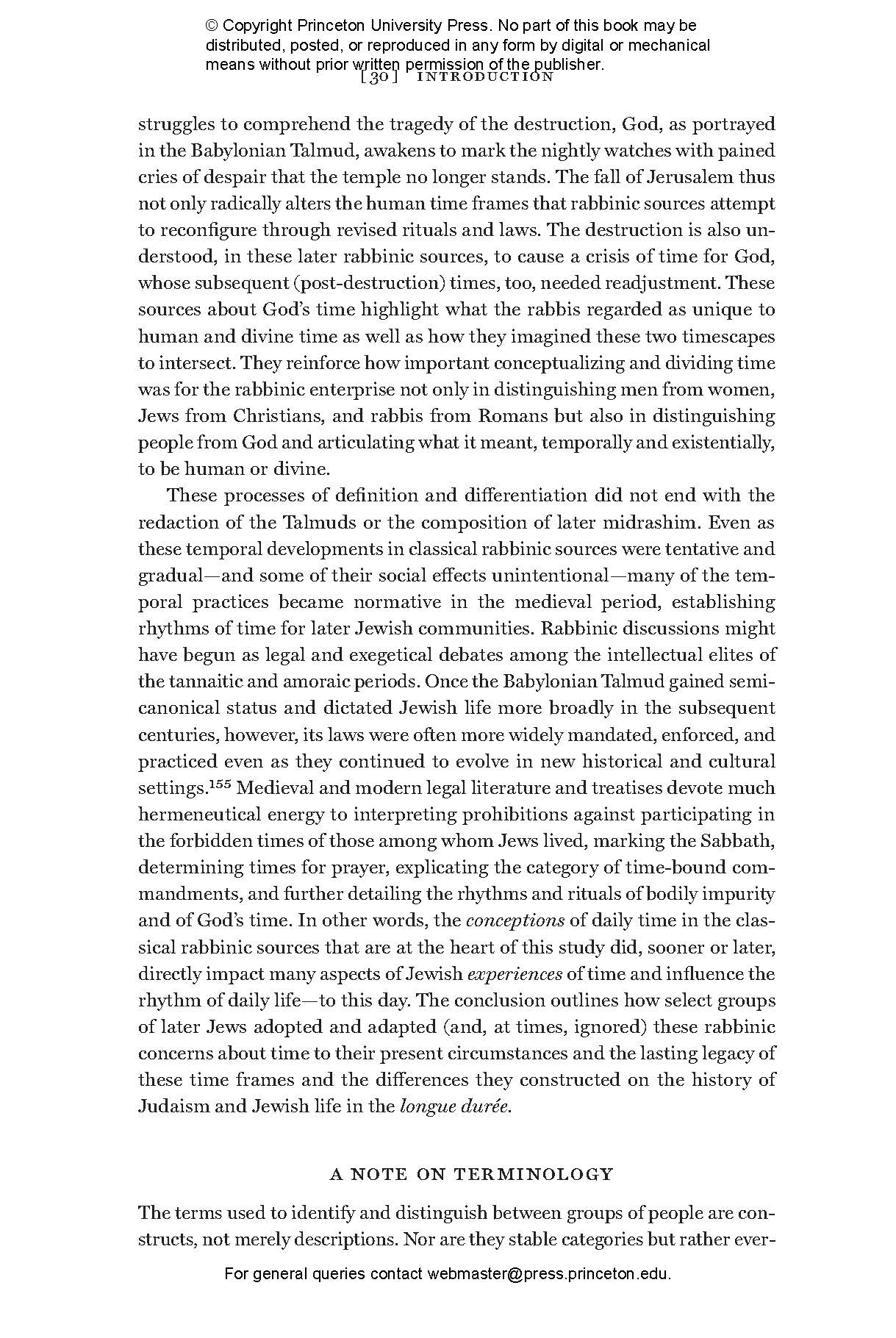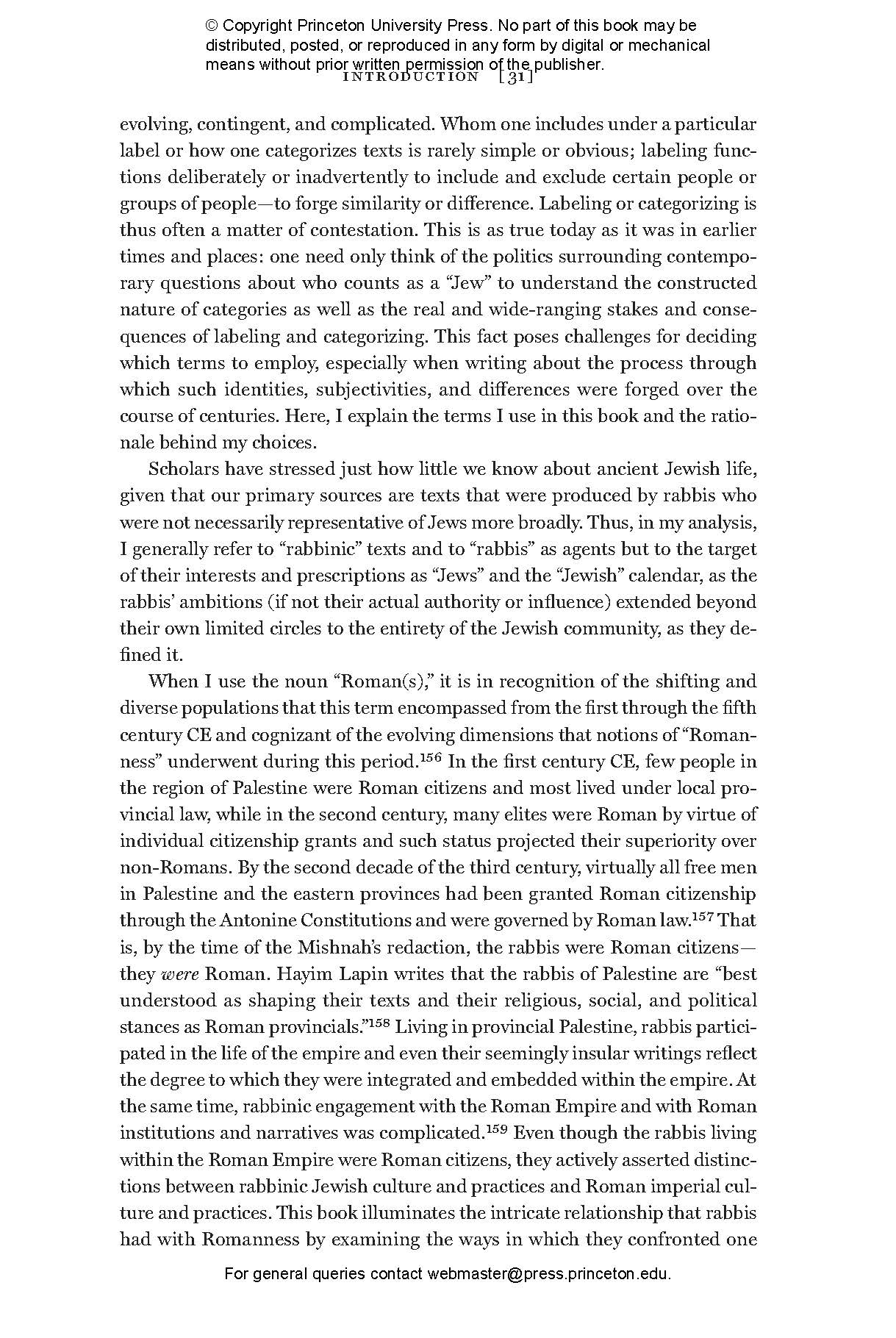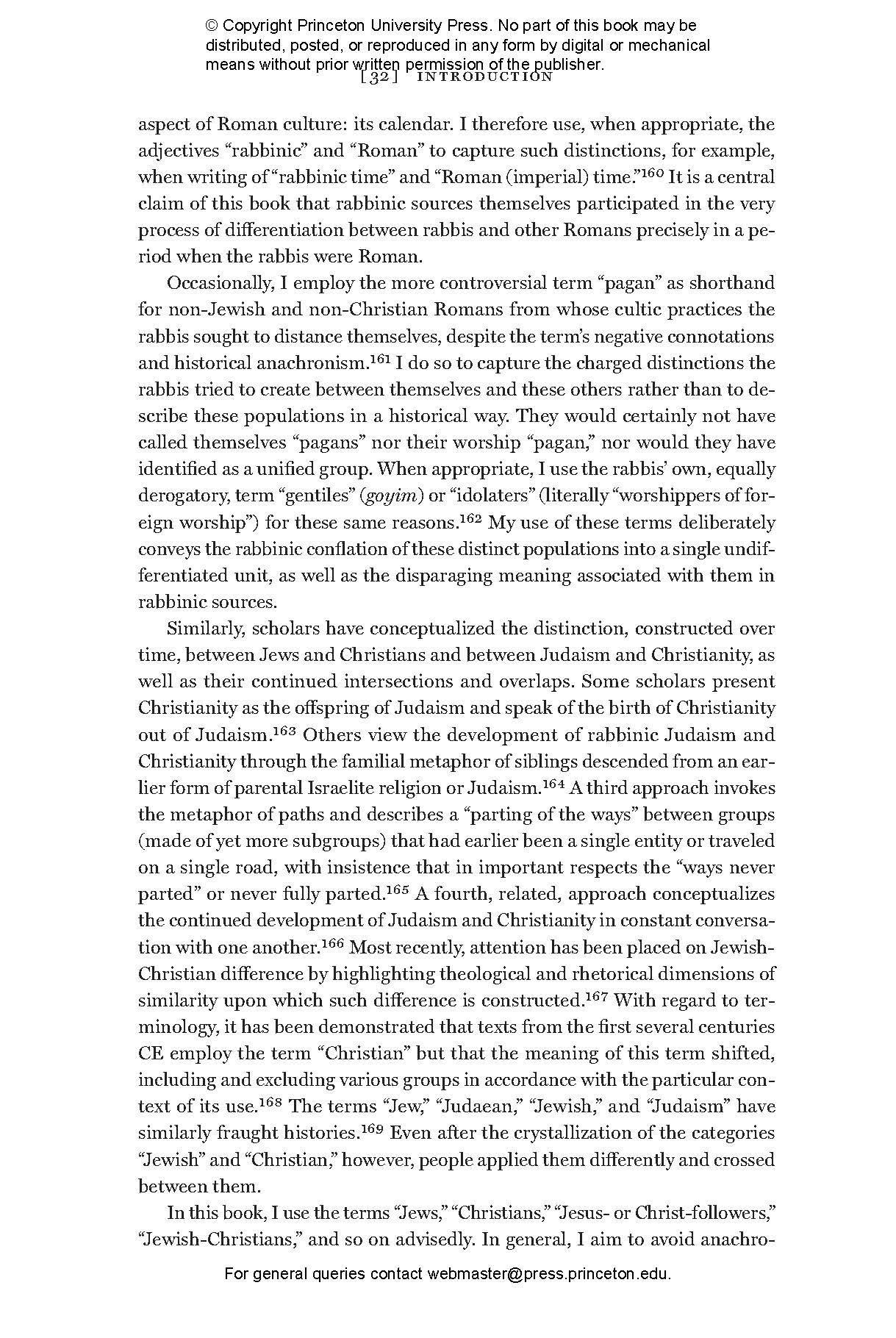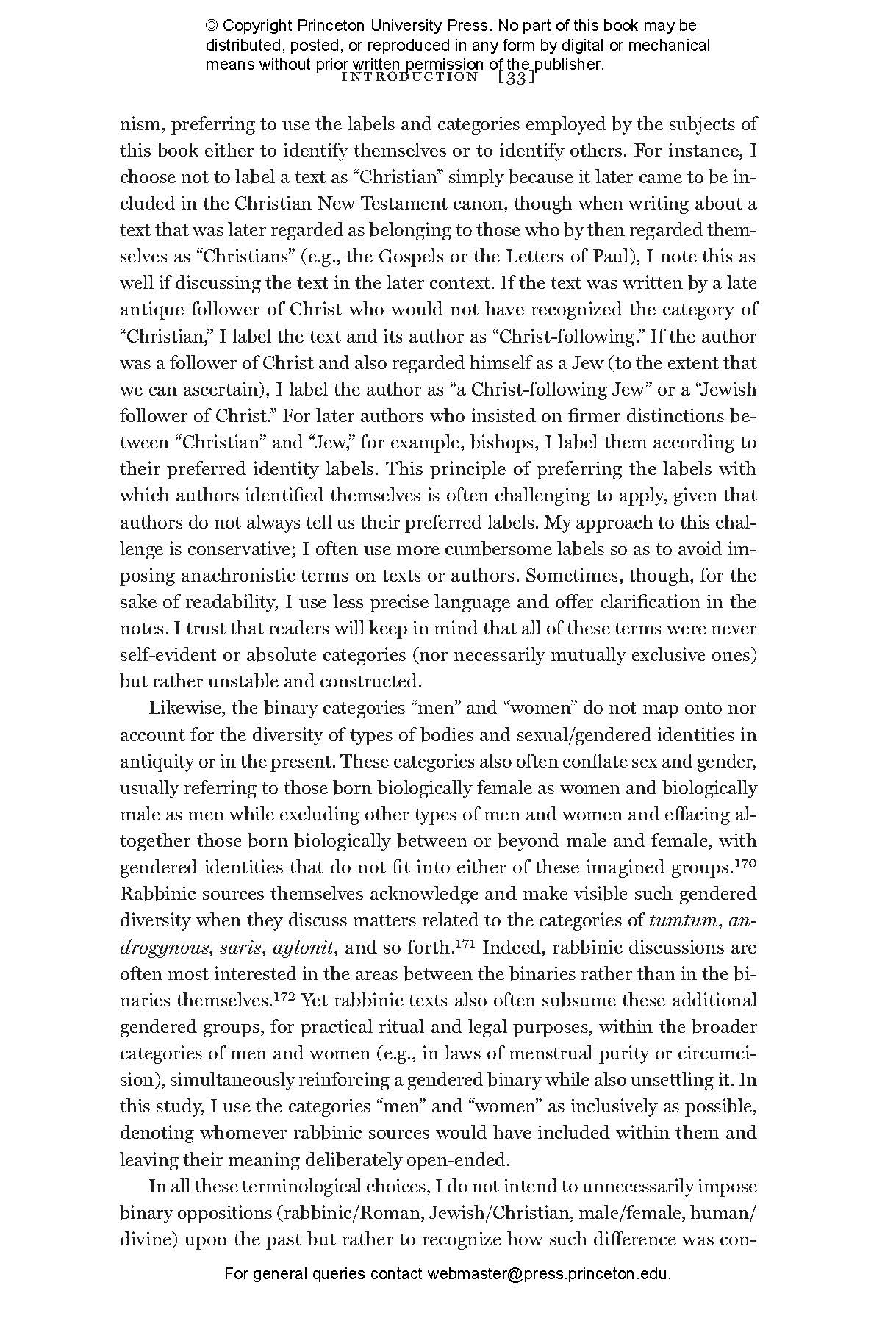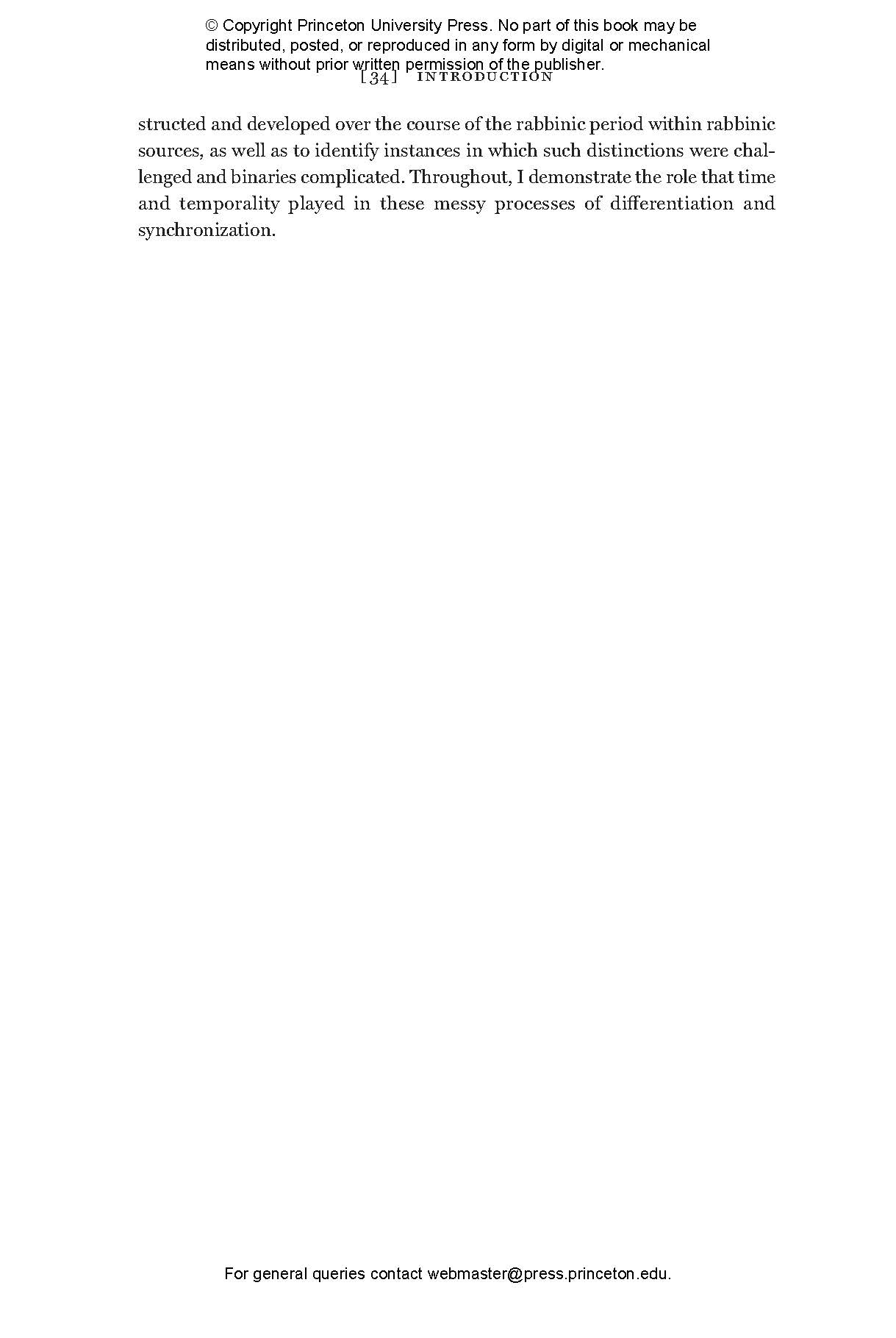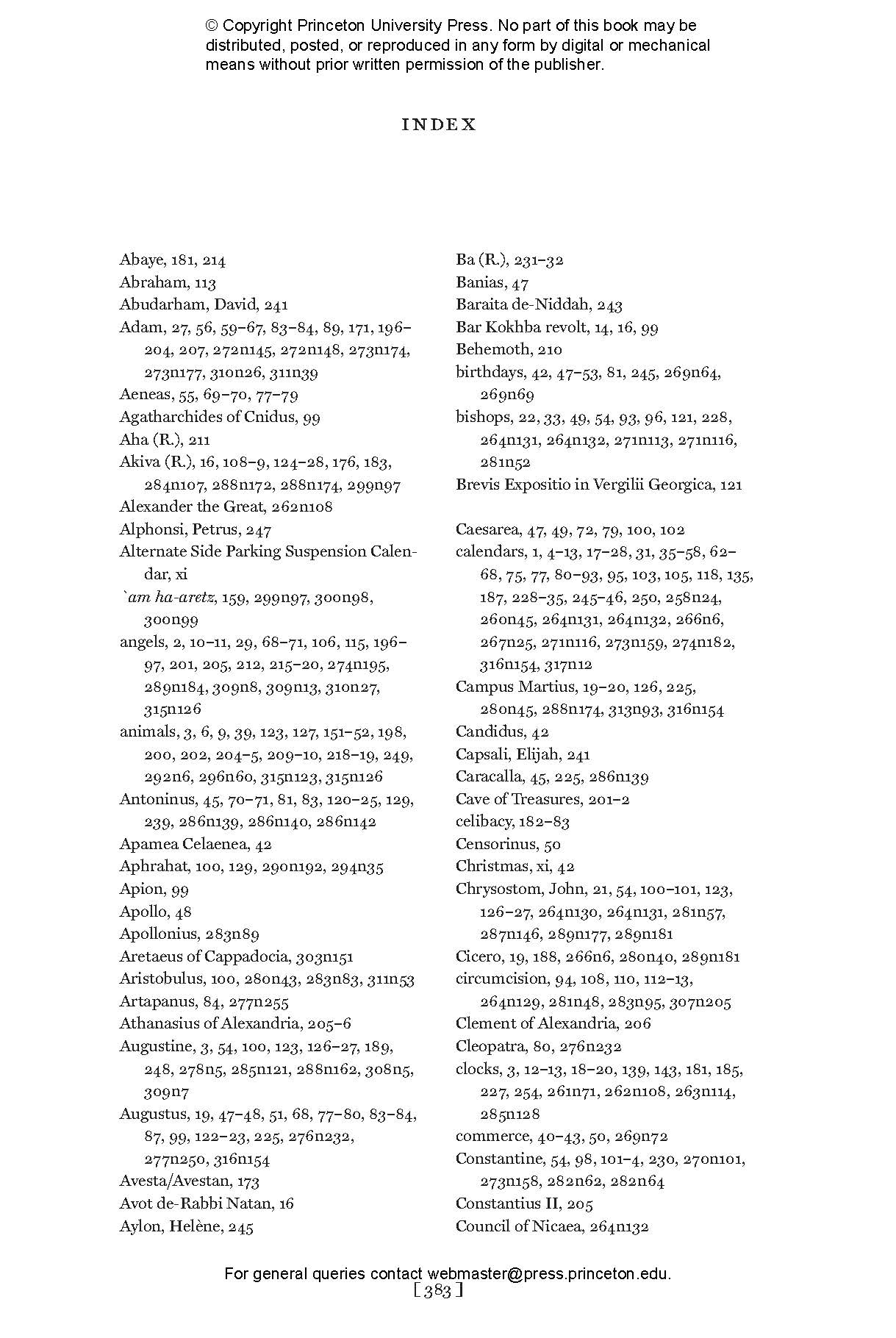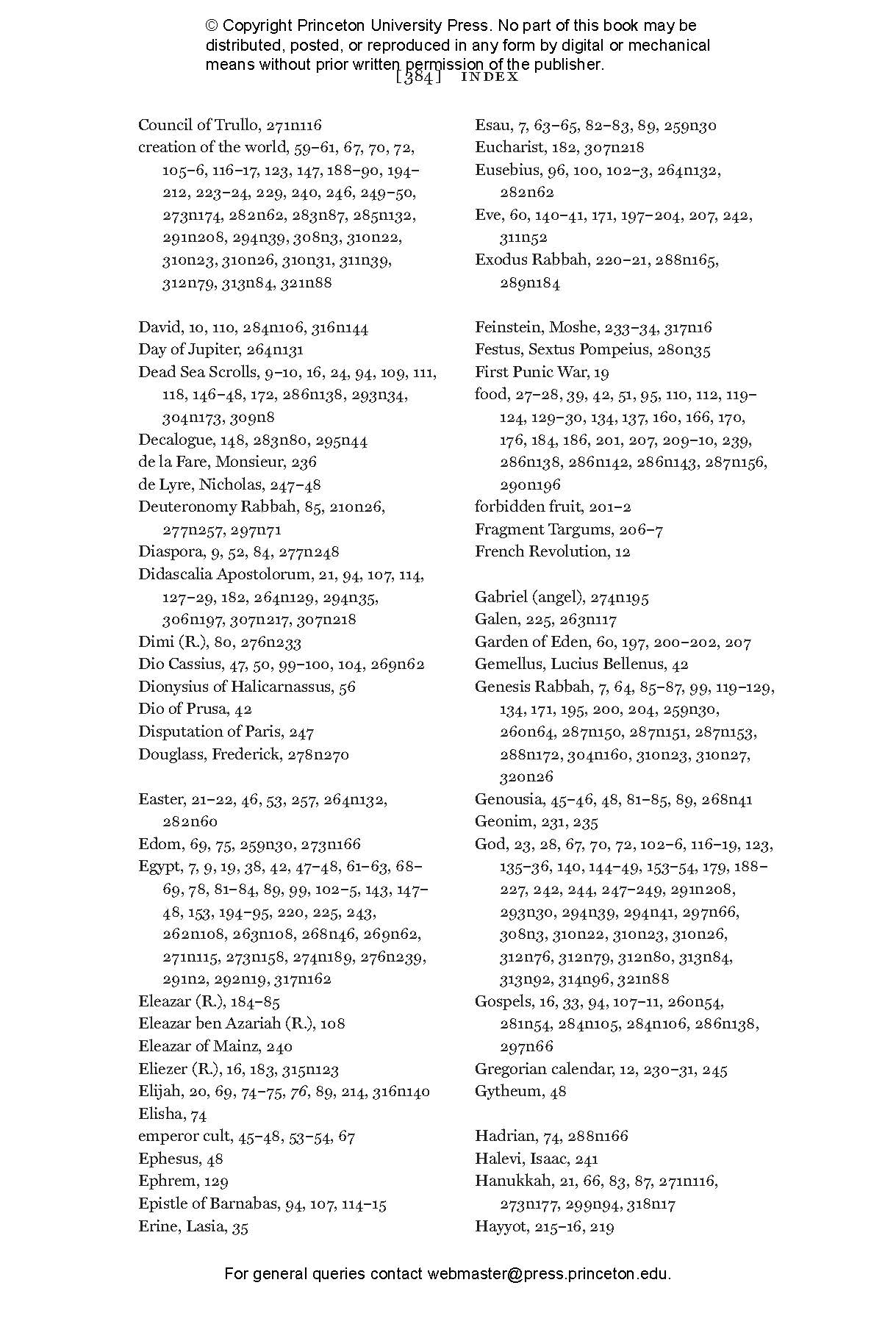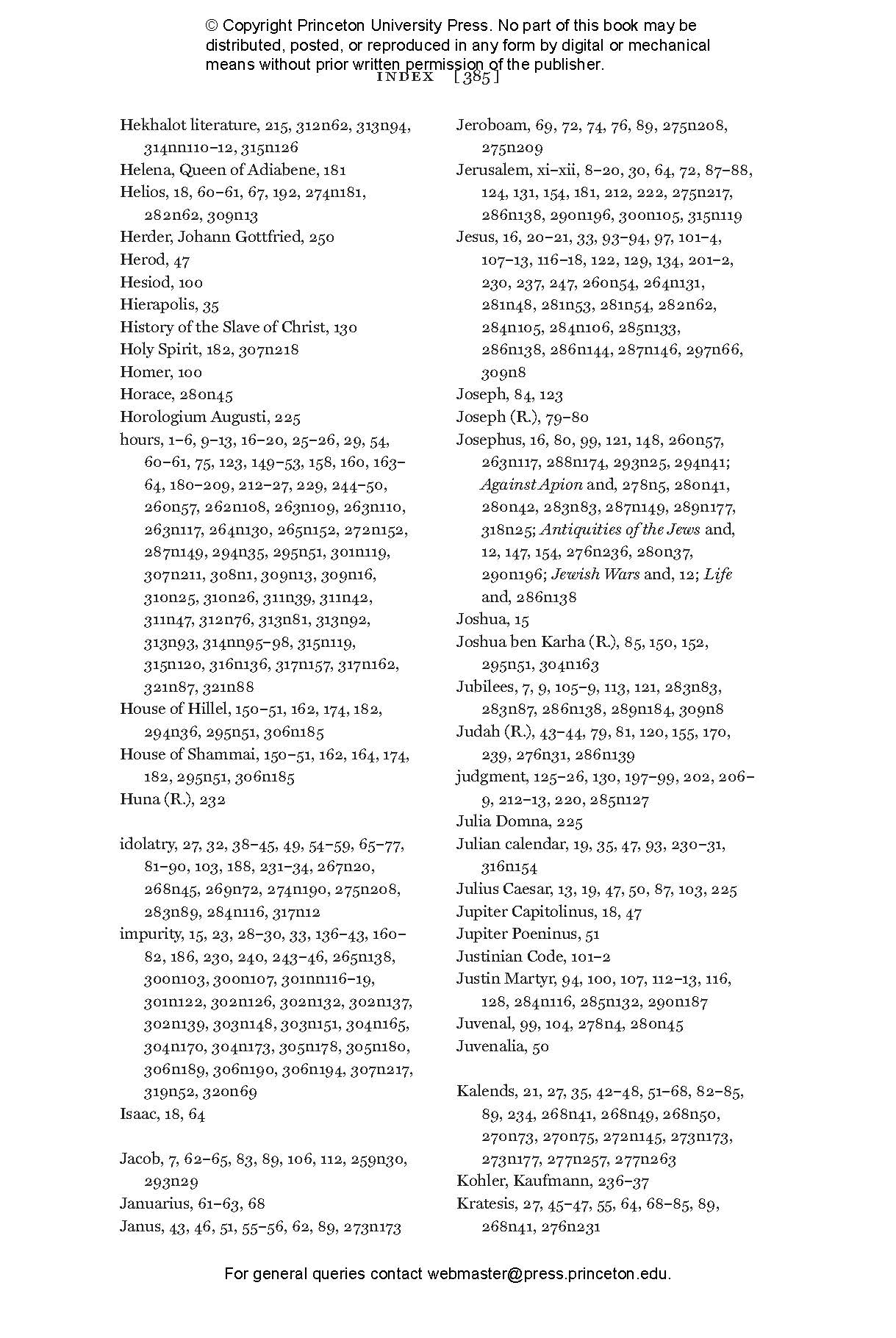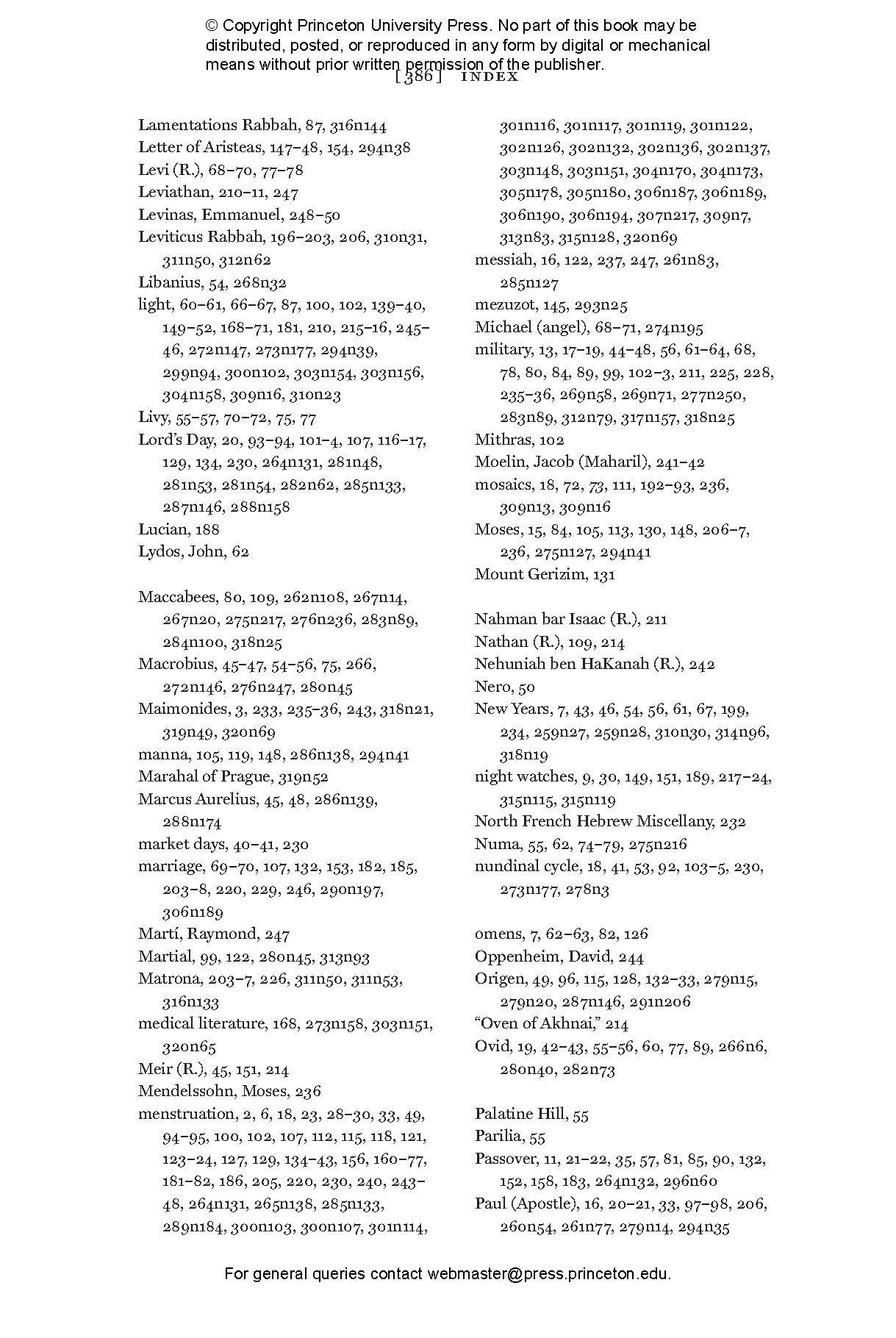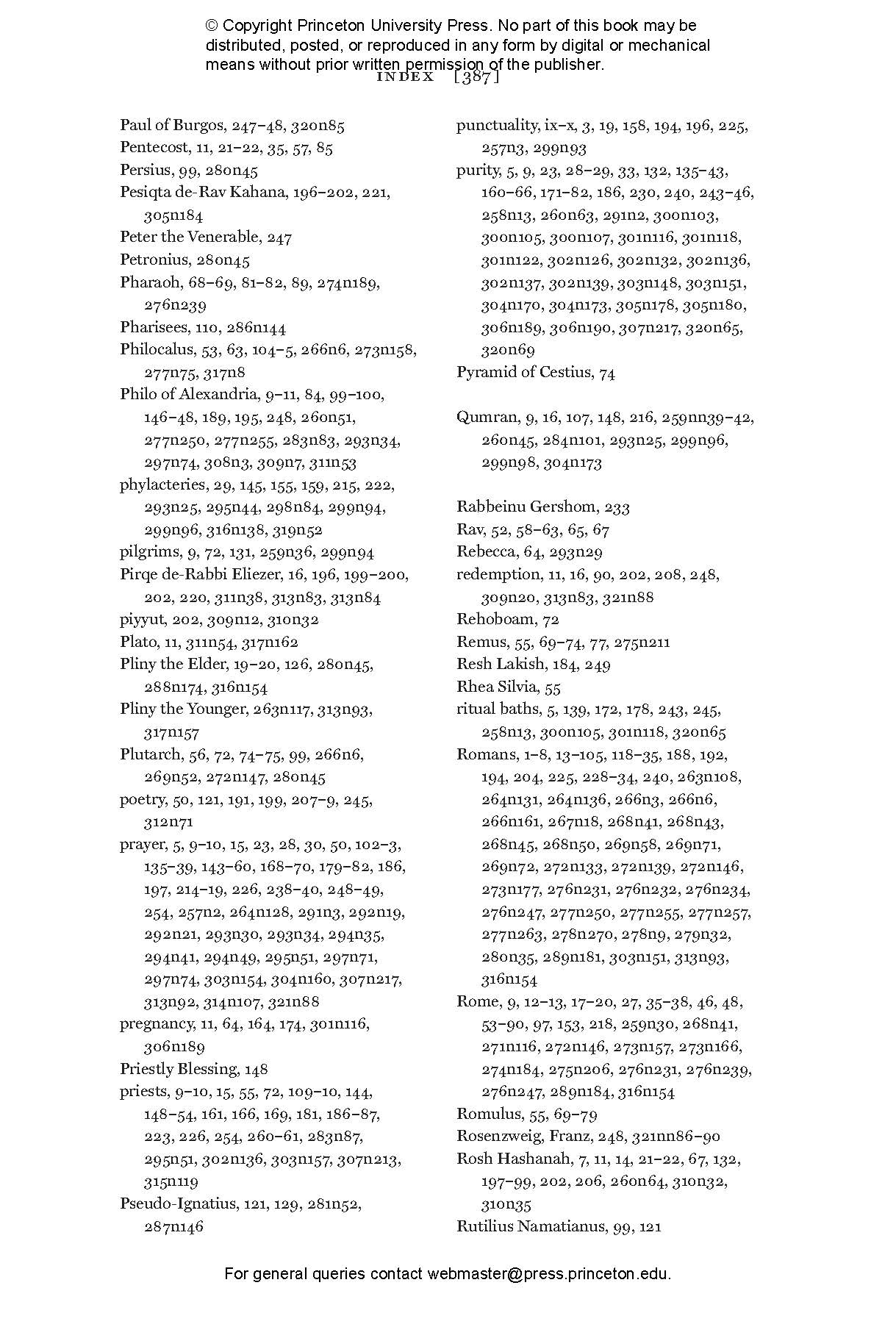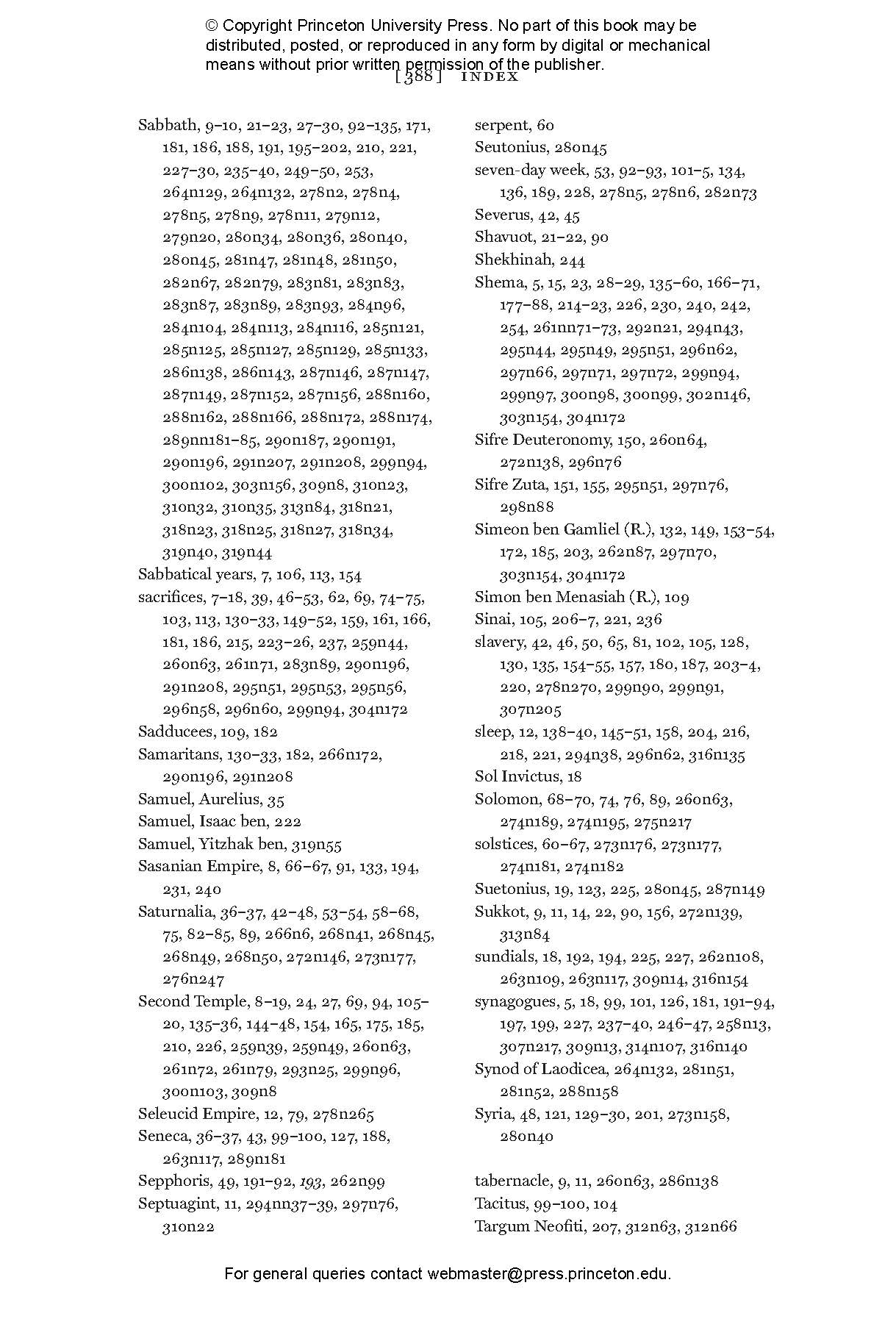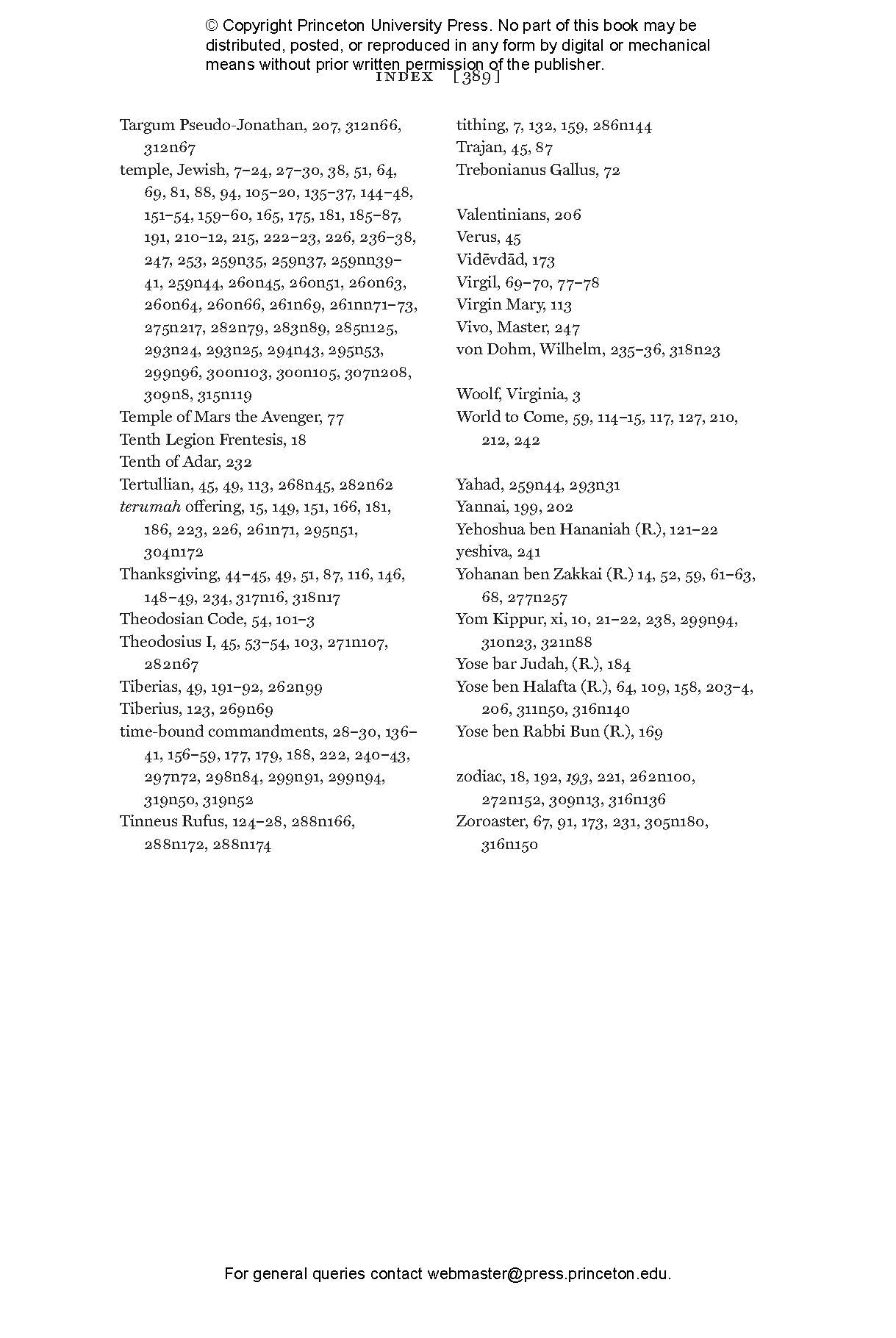The rabbinic corpus begins with a question–“when?”—and is brimming with discussions about time and the relationship between people, God, and the hour. Time and Difference in Rabbinic Judaism explores the rhythms of time that animated the rabbinic world of late antiquity, revealing how rabbis conceptualized time as a way of constructing difference between themselves and imperial Rome, Jews and Christians, men and women, and human and divine.
In each chapter, Sarit Kattan Gribetz explores a unique aspect of rabbinic discourse on time. She shows how the ancient rabbinic texts artfully subvert Roman imperialism by offering “rabbinic time” as an alternative to “Roman time.” She examines rabbinic discourse about the Sabbath, demonstrating how the weekly day of rest marked “Jewish time” from “Christian time.” Gribetz looks at gendered daily rituals, showing how rabbis created “men’s time” and “women’s time” by mandating certain rituals for men and others for women. She delves into rabbinic writings that reflect on how God spends time and how God’s use of time relates to human beings, merging “divine time” with “human time.” Finally, she traces the legacies of rabbinic constructions of time in the medieval and modern periods.
Time and Difference in Rabbinic Judaism sheds new light on the central role that time played in the construction of Jewish identity, subjectivity, and theology during this transformative period in the history of Judaism.
Awards and Recognition
- Winner of the National Jewish Book Award in Scholarship
- Winner of the Jordan Schnitzer Award in Biblical Studies, Rabbinics, and Jewish History and Culture in Antiquity, Association for Jewish Studies
"An important addition to the field of Jewish Studies, for it makes a significant contribution to scholarly discussions on ways of constructing identity in rabbinic literature."—Michail Kitsos, Religious Studies Review
"Time and Difference in Rabbinic Judaism effortlessly weaves together ruminations on time and temporality, rabbinic traditions (both legal and narrative), and Greek and Roman literary sources and material remains. . . . A remarkable achievement."—Max K. Strassfeld, The Journal of Religion
"Through a meticulously researched in-depth analysis of early rabbinic texts, Sarit Kattan Gribetz explores the critical role time plays in forging distinct social identities. Time and Difference in Rabbinic Judaism demonstrates how schedules and calendars accentuate major cultural contrasts between rabbinic and Roman, Jewish and Christian, man and woman, and human and divine. A spectacular, tour de force contribution to the sociohistorical study of time!"—Eviatar Zerubavel, author of Time Maps, Hidden Rhythms, The Seven Day Circle, Ancestors and Relatives, and The Clockwork Muse
"This compelling and marvelously readable book draws scholarly attention to the importance of time as an analytic rubric for understanding rabbinic culture. The breadth of scholarship is so wide-ranging that at times it took my breath away."—Elizabeth Shanks Alexander, author of Gender and Timebound Commandments in Judaism
"Time and Difference in Rabbinic Judaism undertakes to reveal as constructed something we are encouraged to experience as natural: the relationship of humans and their world to time. With wondrous learning, Sarit Kattan Gribetz shows how the rabbis of the Mishnah and in late antiquity employed the construction of time to distinguish, but also often to bind, Jews, Romans, and Christians; women and men; and God and his children. Following the Jews spatially into Iran, and historically until the modern world, Time and Difference in Rabbinic Judaism is an exemplary and exhilarating work of history."—Clifford Ando, author of Law, Language, and Empire in the Roman Tradition
"Sarit Kattan Gribetz's beautifully written book uses rabbinic texts to uncover how cultural and communal perceptions of time were constructed in late antiquity. She reveals the multiplicity and complexity of rabbinic 'timescapes' while opening up larger questions about our modern conceptions of time and our day-to-day commitments to use it well."—Laura Salah Nasrallah, author of Archaeology and the Letters of Paul
"Presenting a rich case study in late-antique rabbinic timescapes, Gribetz systematically maps the differentiating function of time across an array of social categories, from empire to the gendered body. This cutting-edge book has made me think anew about time in both the ancient world and social discourse more generally."—James Ker, University of Pennsylvania
"Time and Difference in Rabbinic Judaism is a thoughtful, meaningful, and beautifully written work of scholarship."—Beth A. Berkowitz, author of Defining Jewish Difference
